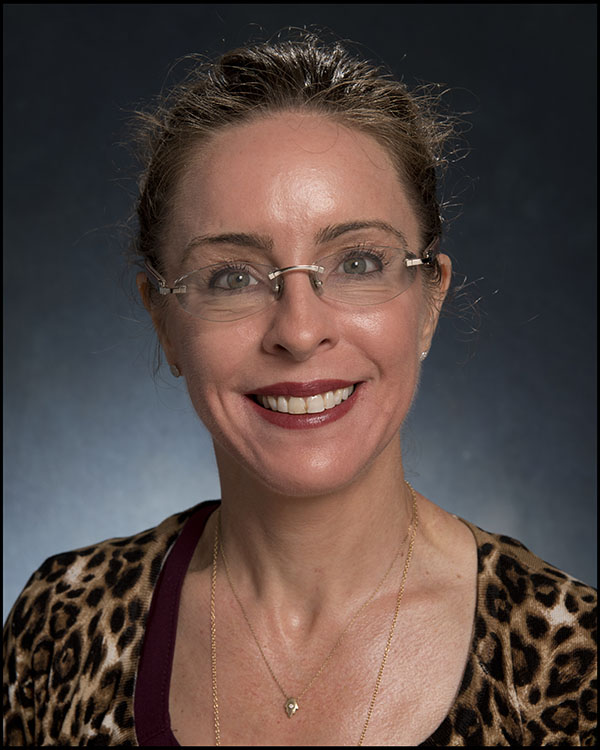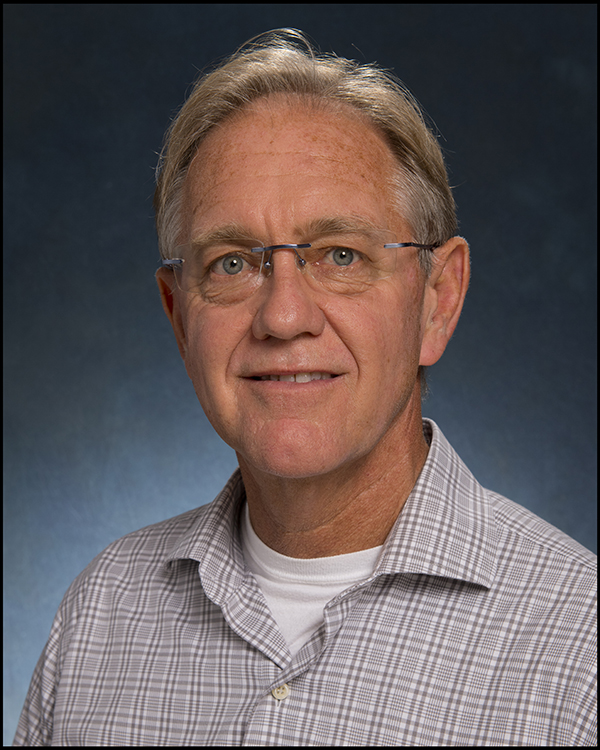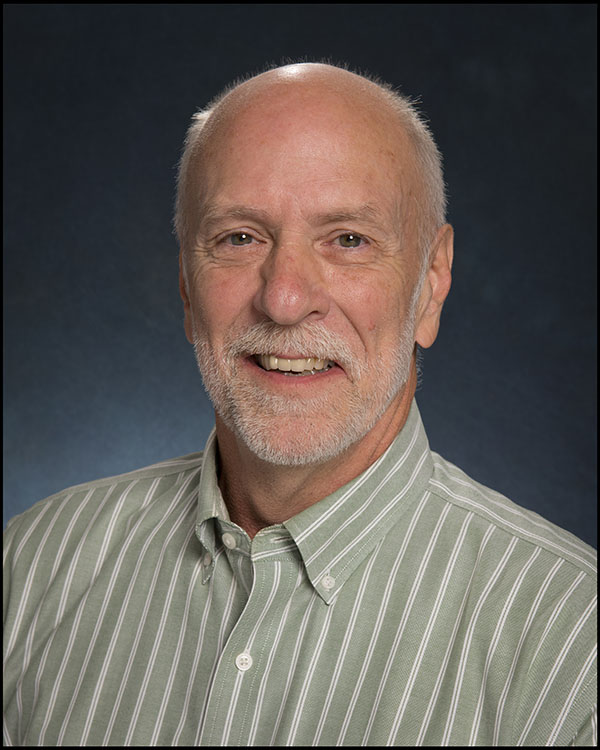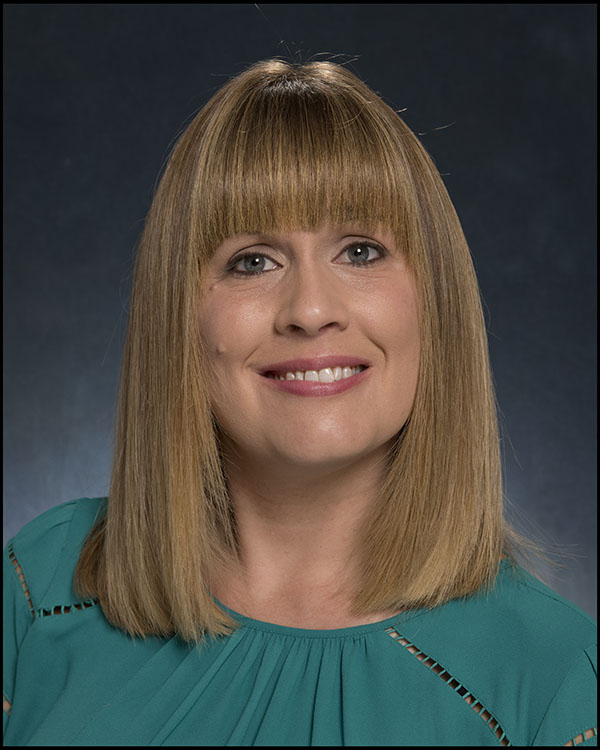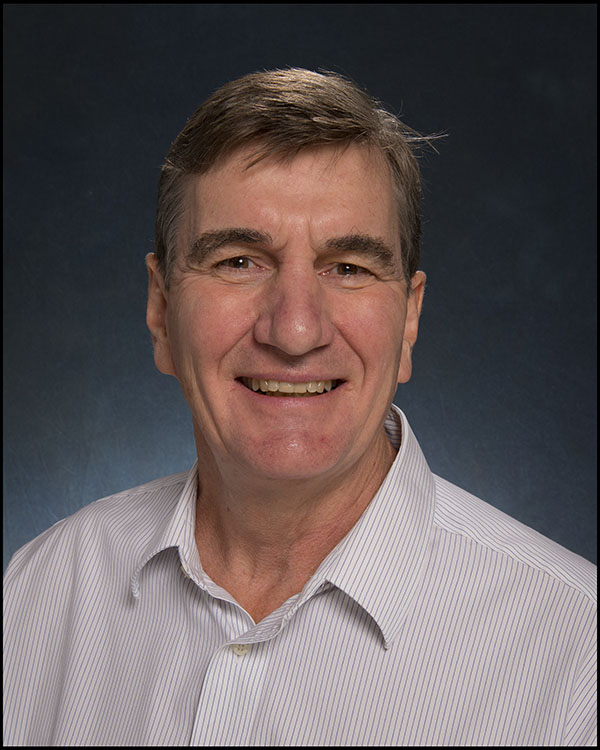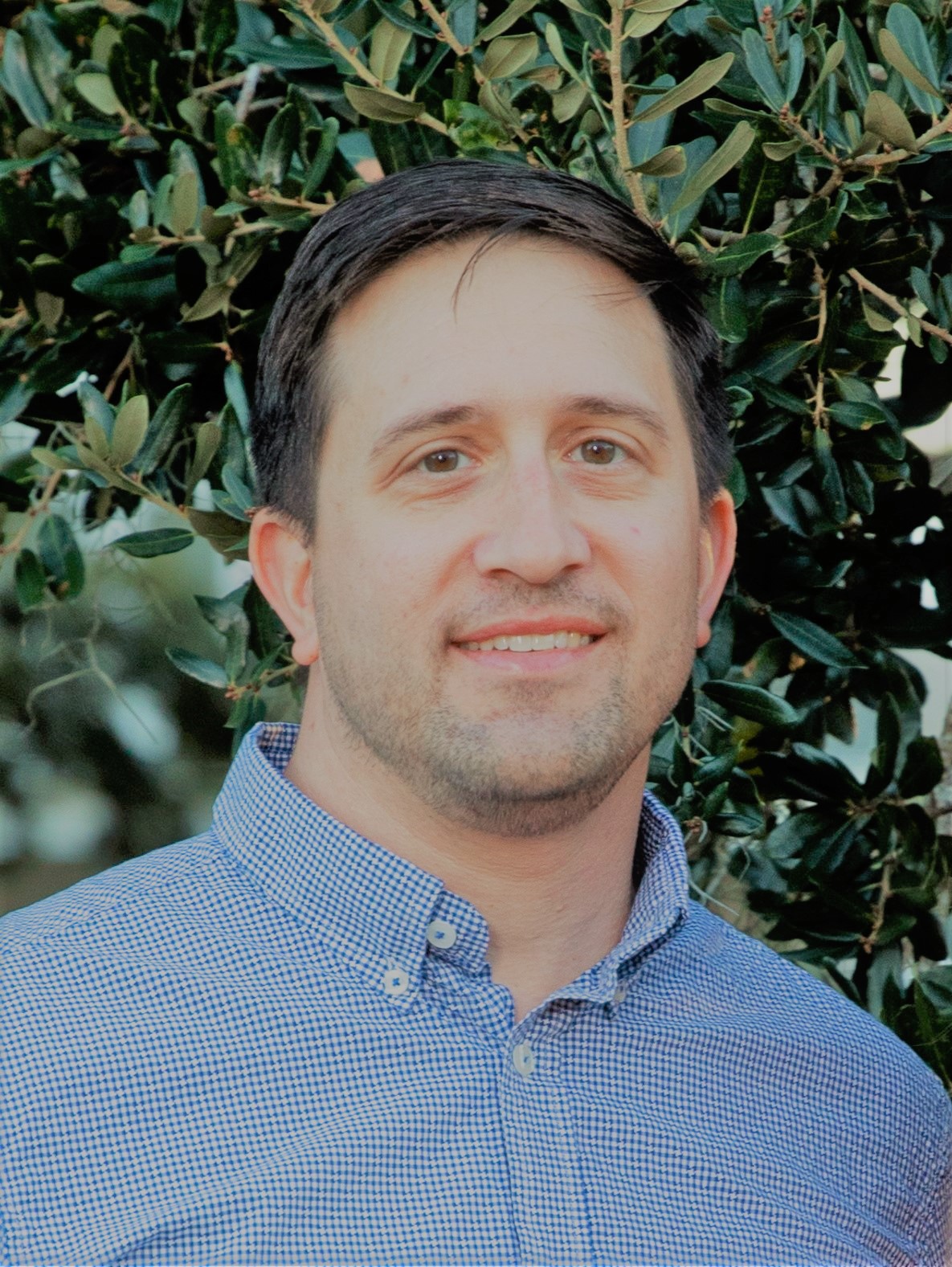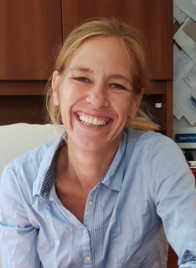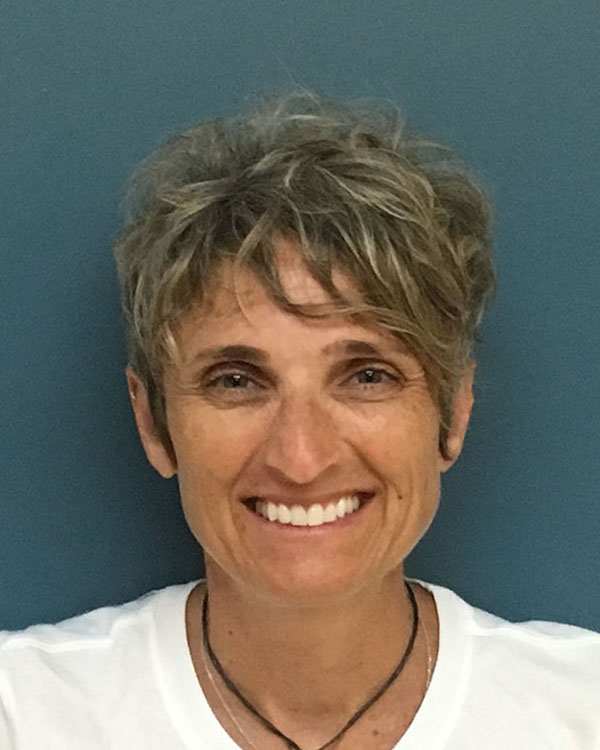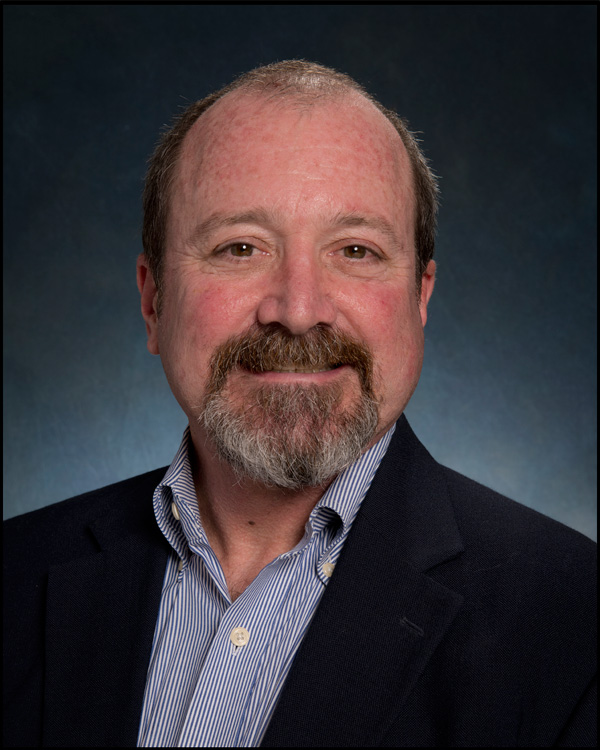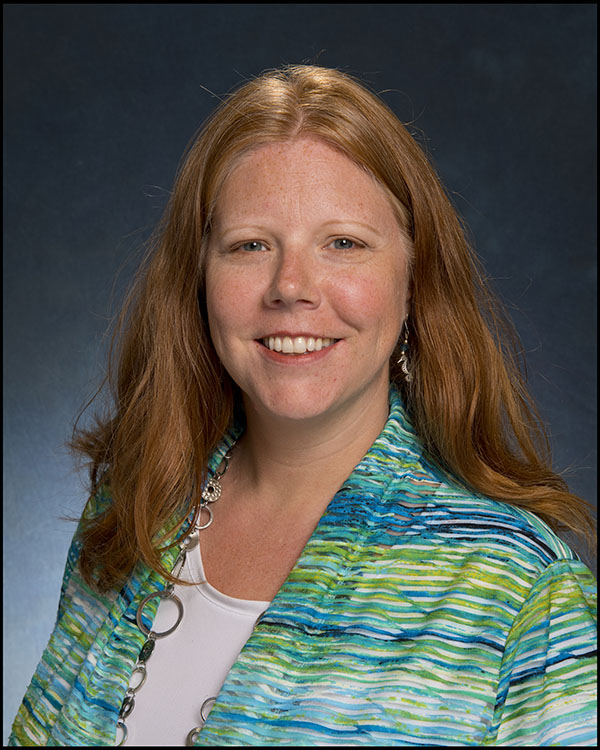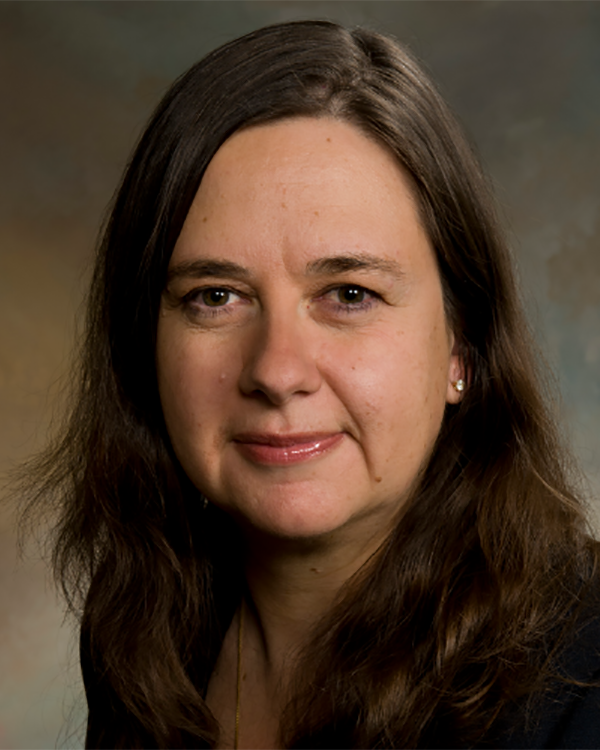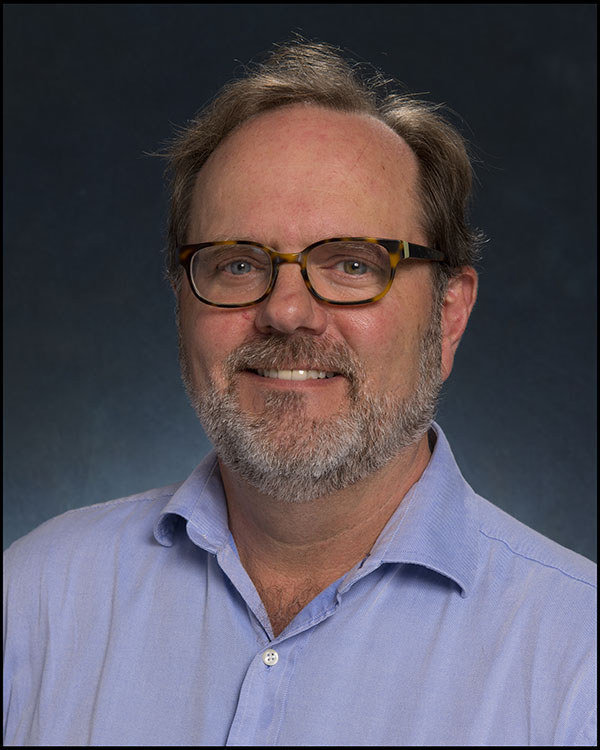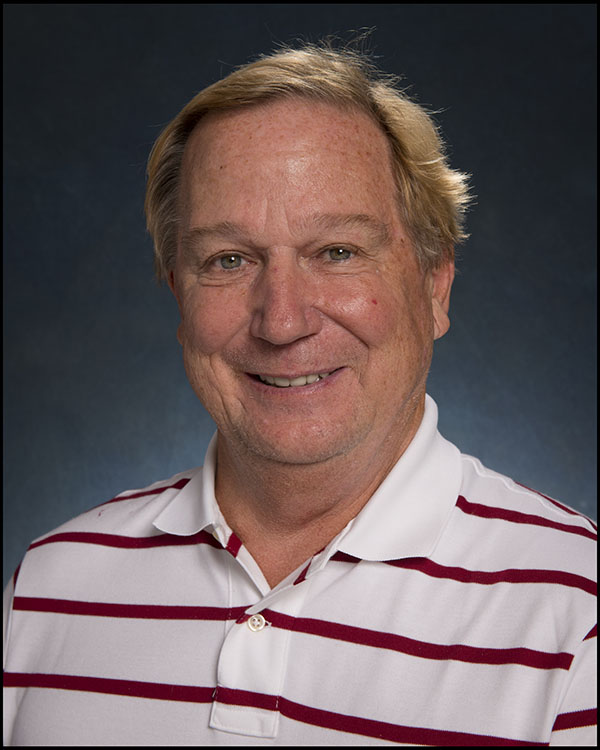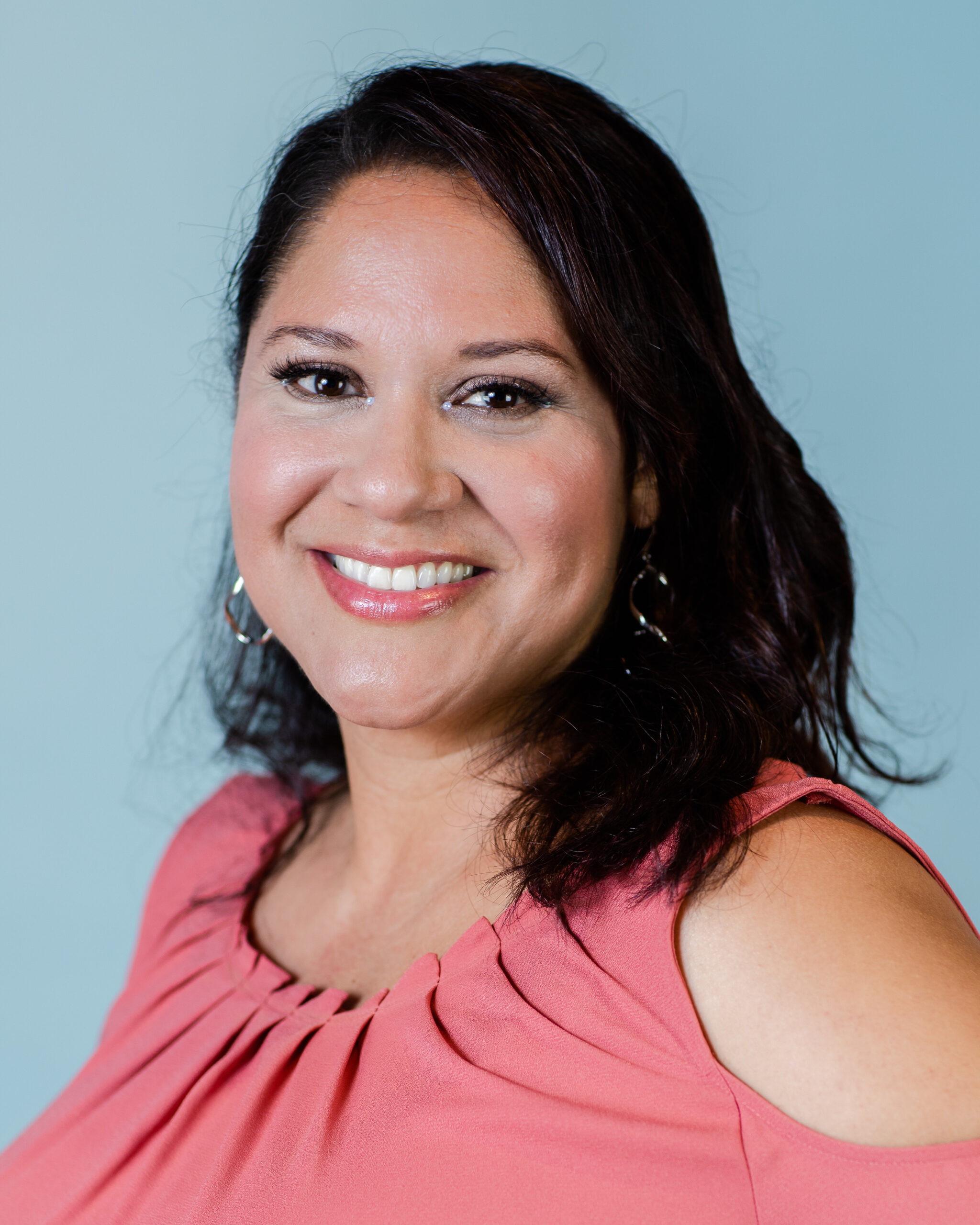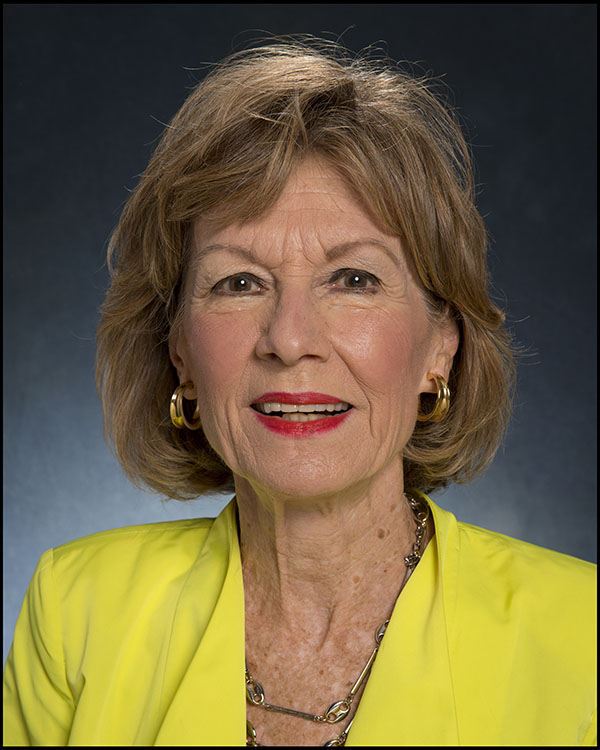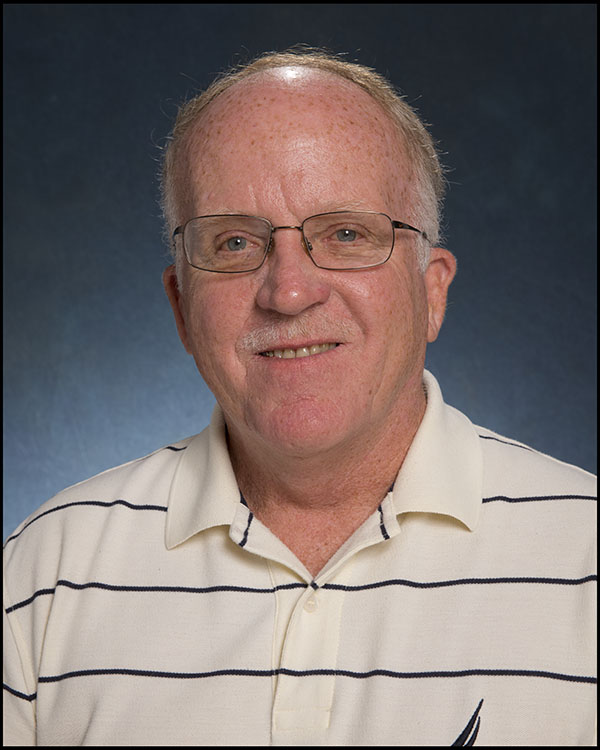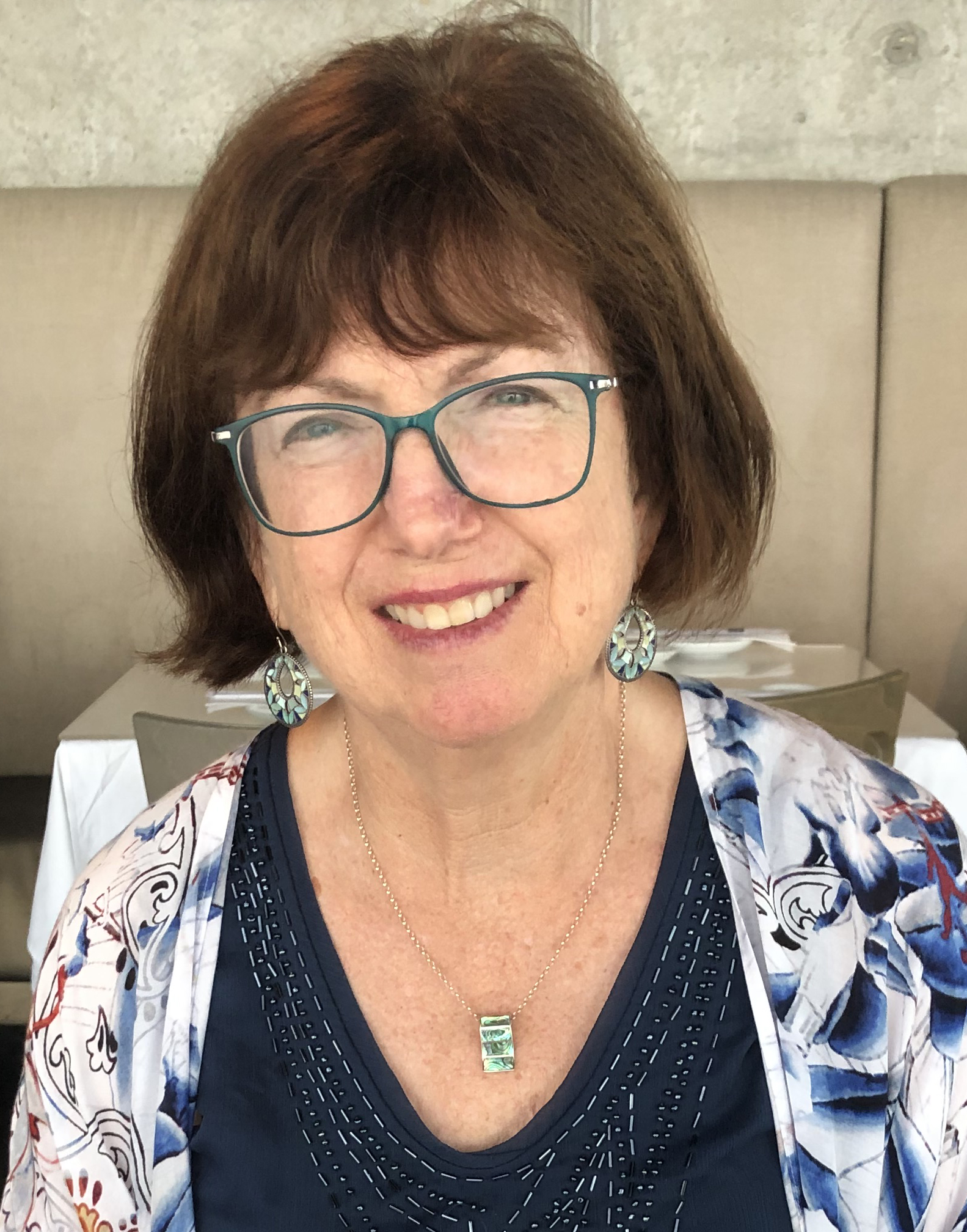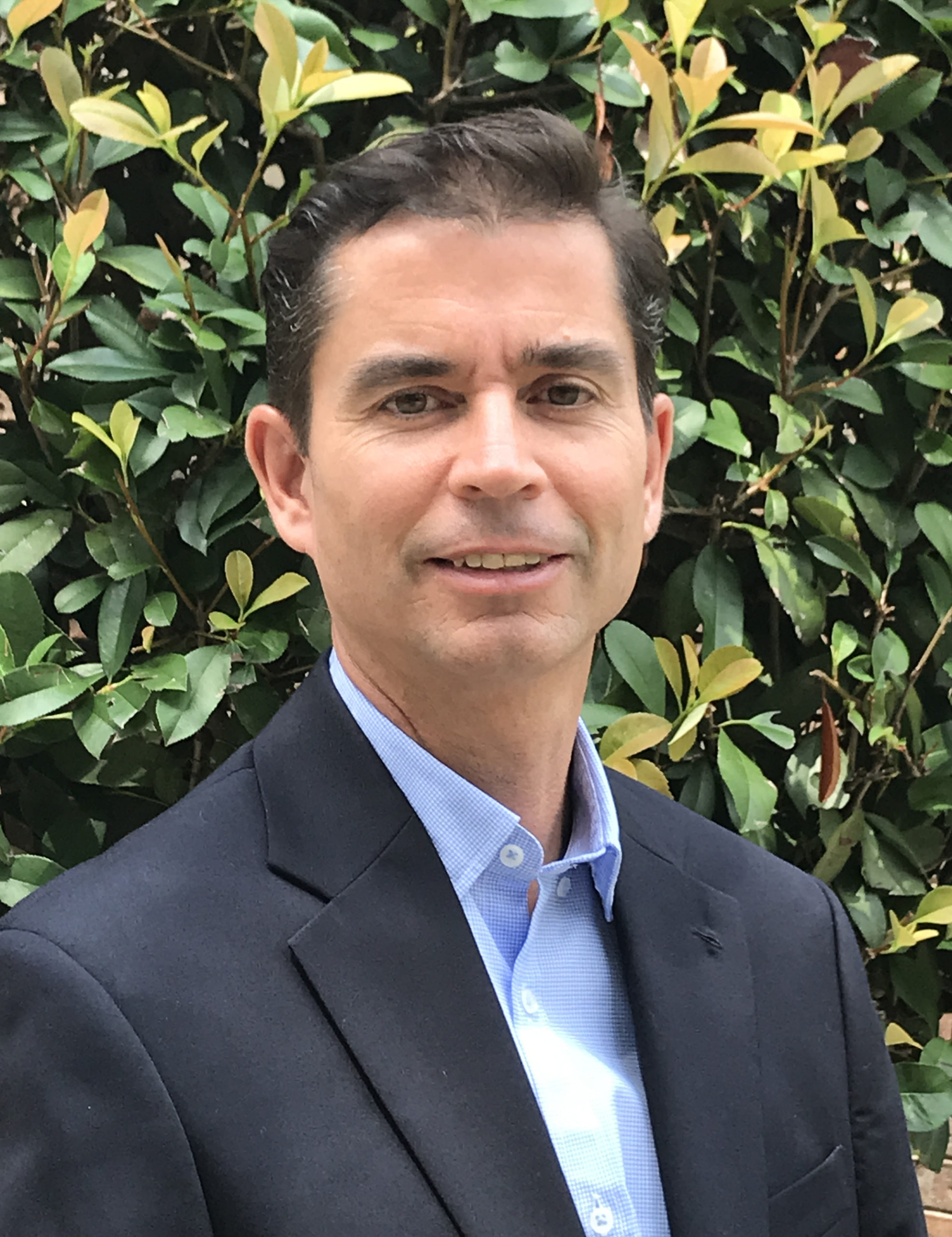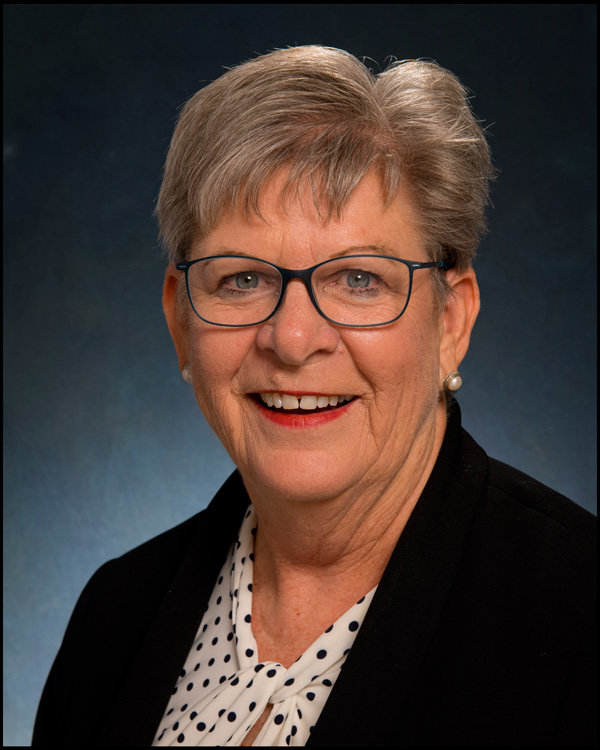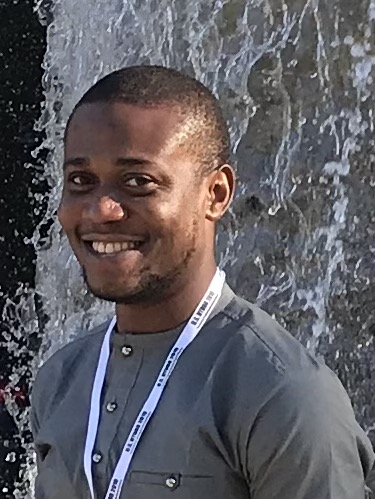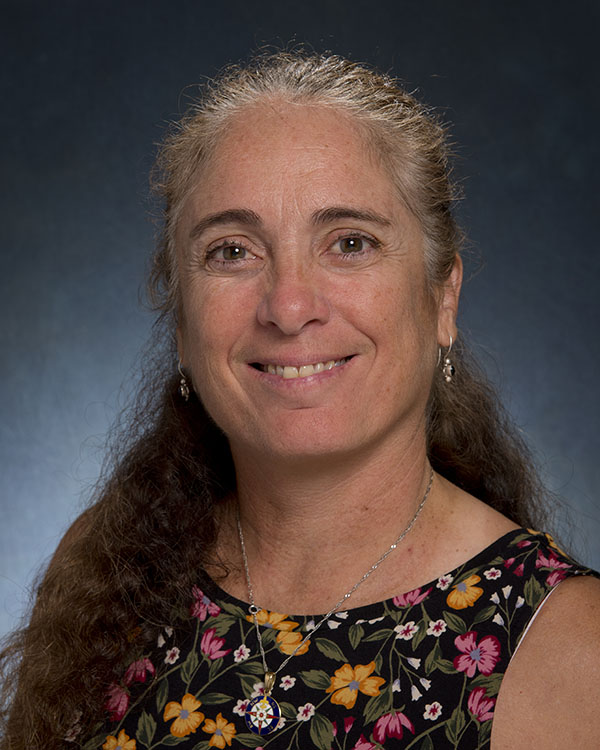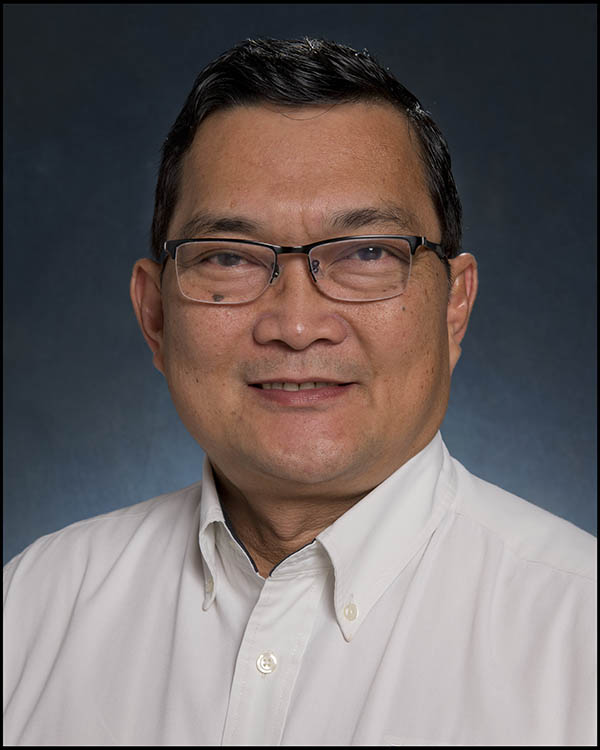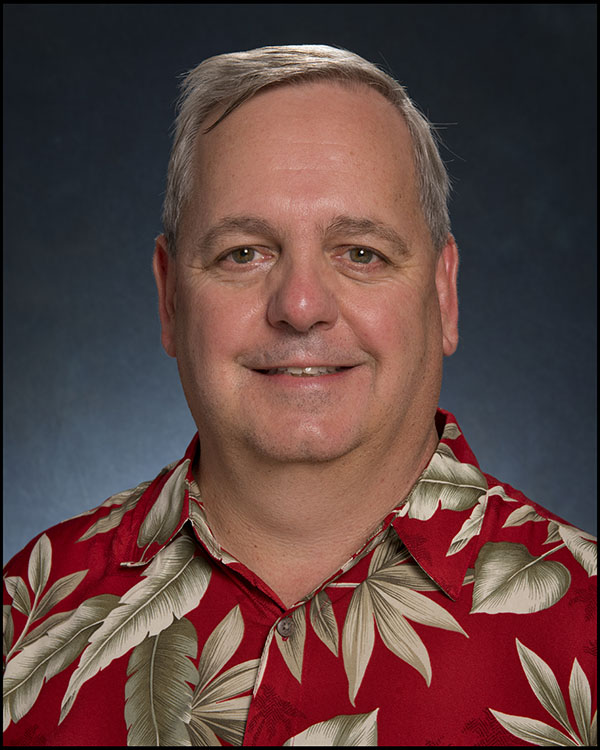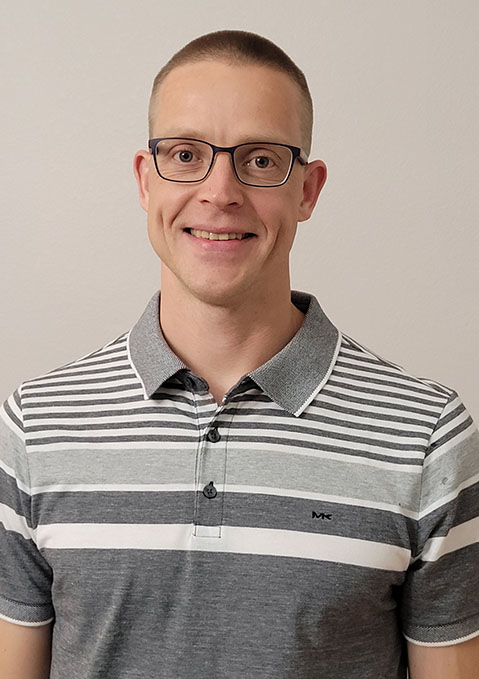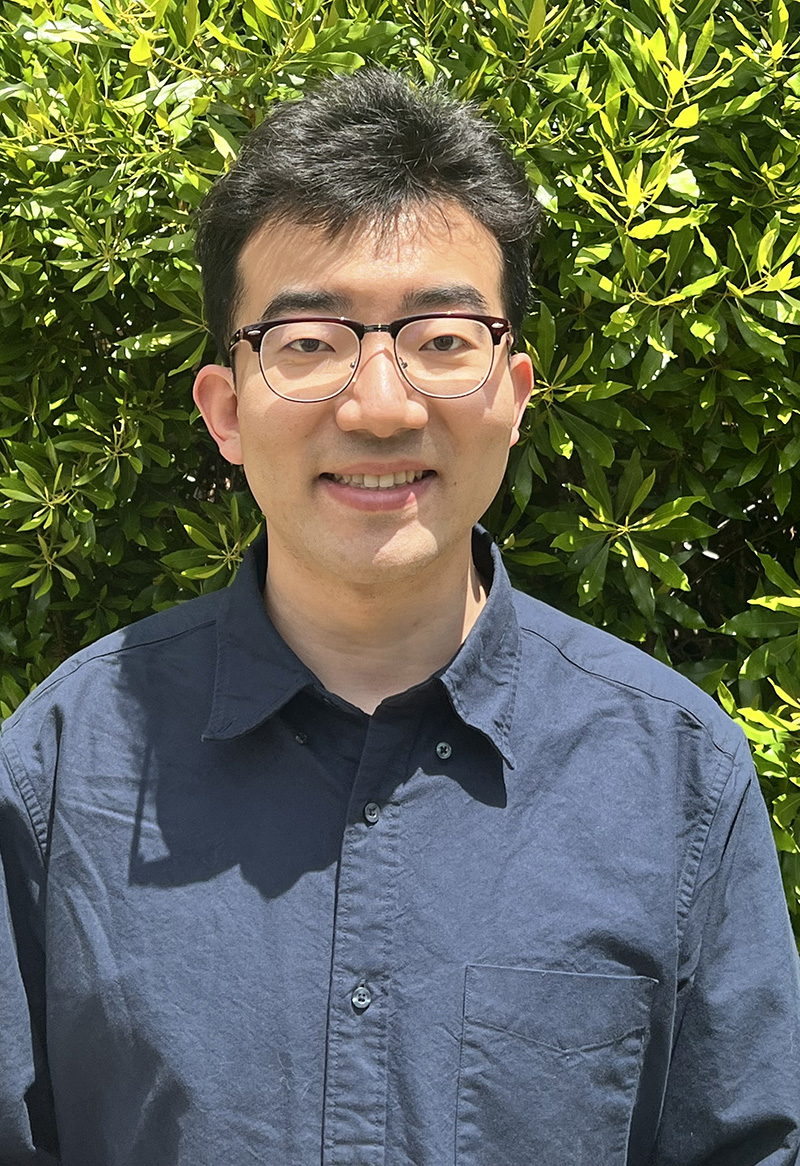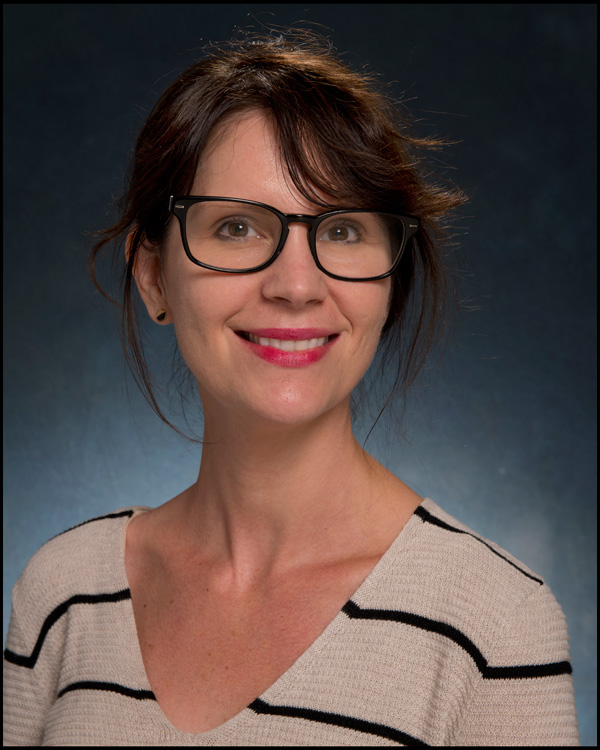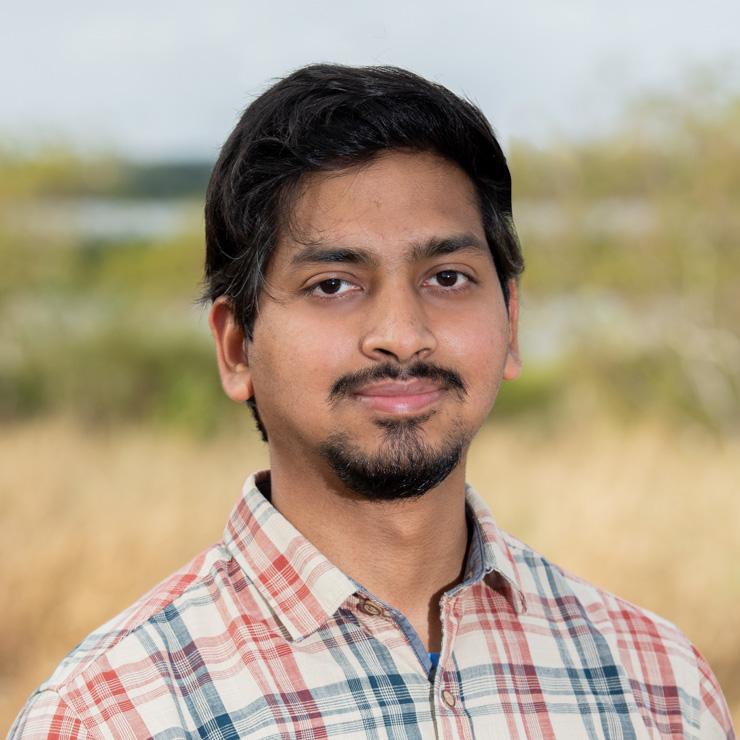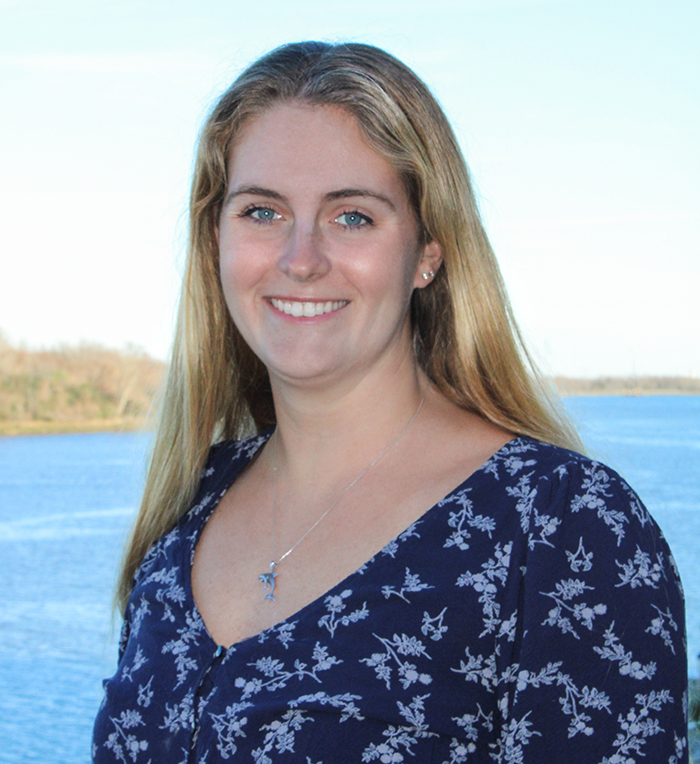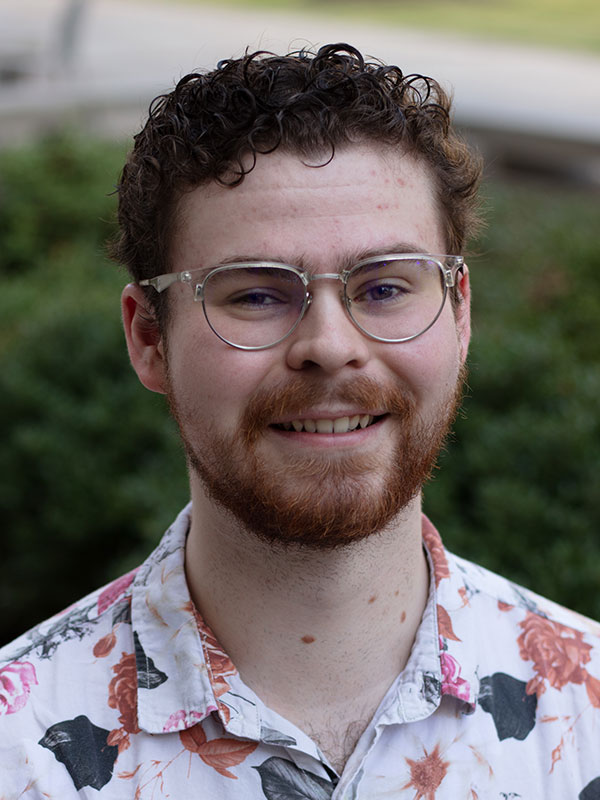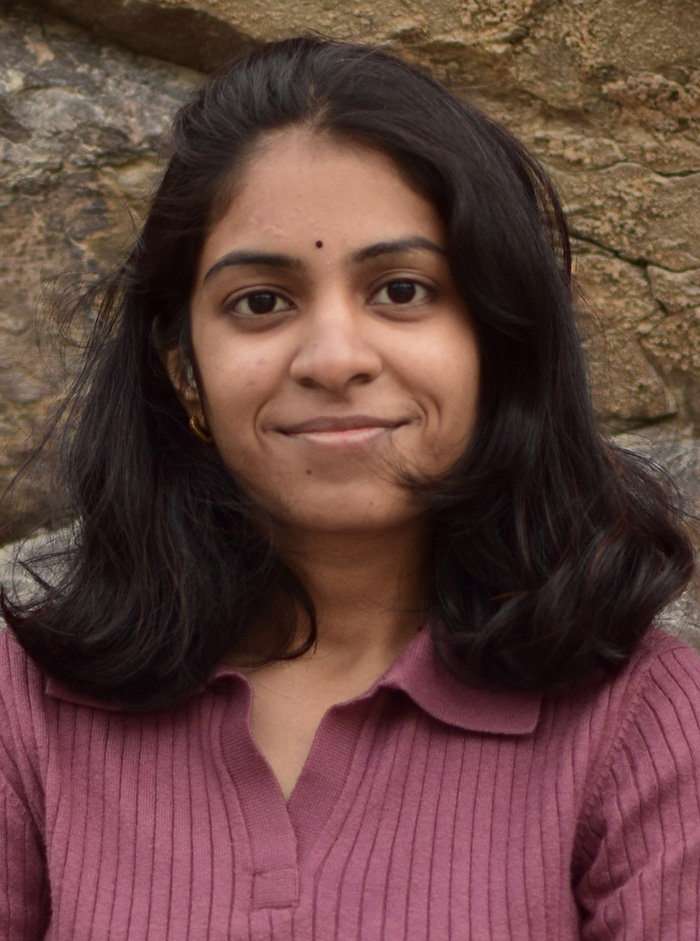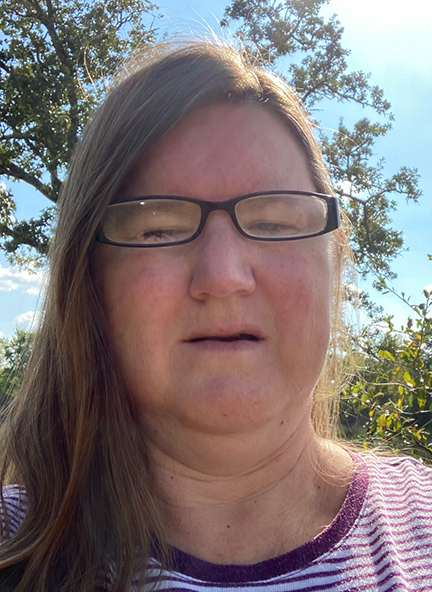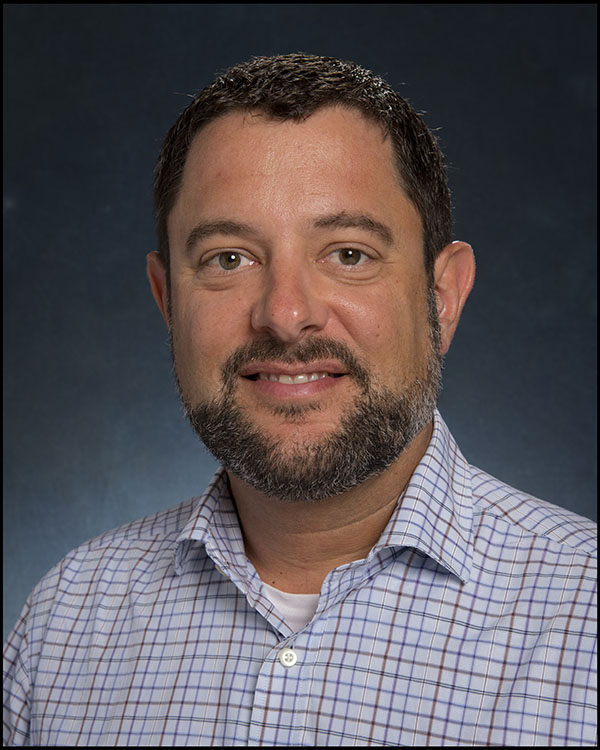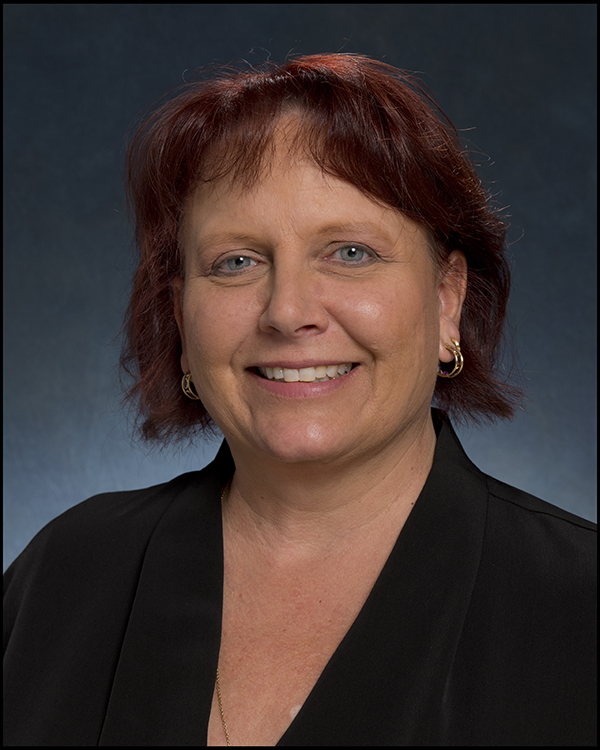GCOOS Board: Private Sector Representatives
Alyssa Dausman, Ph.D., has more than 20 years of experience working in hydrology, research plan development, and restoration project science and monitoring. Dausman previously served as the Science Director for the Gulf Coast Ecosystem Restoration Council, an independent federal agency created by the RESTORE Act in 2012. She focused on Gulf restoration and science for the council, comprised of the governors of the five Gulf states and cabinet-level officials from six federal agencies.
At the council, Dausman led the consensus-based development of the Initial Funded Priorities List — a $156 million suite of projects containing on-the-ground restoration activities and served as the senior scientist in drafting the council’s 2016 Comprehensive Plan.
Born and raised in Mississippi, Dausman has always been passionate about the Gulf, coastal restoration, and water resources. She began her career as a hydrologist with the U.S. Geological Survey in Florida in 2000 after completing her B.S. at Tulane University and her M.S. at the University of New Orleans. She received her Ph.D. from Florida International University in 2008 while working with the USGS. During her years in Florida she focused on numerical modeling of saltwater intrusion and model independent parameter estimation and uncertainty analysis. This work led her to teach all over the world, including India, Portugal, and Mexico. In 2011, she moved back to the northern Gulf to work on coastal restoration. She was staffed to the Gulf Coast Ecosystem Restoration Task Force and was a senior representative to the U.S. Department of the Interior to support both the RESTORE Council and restoration monitoring for the Natural Resource Damage Assessment process.
Alyssa Dausman, Ph.D., has more than 20 years of experience working in hydrology, research plan development, and restoration project science and monitoring. Dausman previously served as the Science Director for the Gulf Coast Ecosystem Restoration Council, an independent federal agency created by the RESTORE Act in 2012. She focused on Gulf restoration and science for the council, comprised of the governors of the five Gulf states and cabinet-level officials from six federal agencies.
At the council, Dausman led the consensus-based development of the Initial Funded Priorities List — a $156 million suite of projects containing on-the-ground restoration activities and served as the senior scientist in drafting the council’s 2016 Comprehensive Plan.
Born and raised in Mississippi, Dausman has always been passionate about the Gulf, coastal restoration, and water resources. She began her career as a hydrologist with the U.S. Geological Survey in Florida in 2000 after completing her B.S. at Tulane University and her M.S. at the University of New Orleans. She received her Ph.D. from Florida International University in 2008 while working with the USGS. During her years in Florida she focused on numerical modeling of saltwater intrusion and model independent parameter estimation and uncertainty analysis. This work led her to teach all over the world, including India, Portugal, and Mexico. In 2011, she moved back to the northern Gulf to work on coastal restoration. She was staffed to the Gulf Coast Ecosystem Restoration Task Force and was a senior representative to the U.S. Department of the Interior to support both the RESTORE Council and restoration monitoring for the Natural Resource Damage Assessment process.
Bill Lingsch’s 37-year career in the ocean sciences has included 31 years with Naval Oceanography and six years in the private sector supporting Navy Oceanography in R&D and operations.
Lingsch is Past Chair of the Gulf of Mexico Coastal Ocean Observing System (GCOOS) (2016-2017) and has been a GCOOS member for five years. He is the former U.S. Glider User Group Coordinator, a joint position of GCOOS and the U.S. IOOS Program Office, and retired as the Director of Ocean Science and Technology for Perspecta (formerly Vencore, Inc.) at Stennis Space Center, MS.
While at Perspecta, his responsibilities included serving as Program Manager for approximately $9-10M/Yr in contracts and 50 personnel who provide subject-matter expertise in the ocean sciences, software engineering, software development, database development, process improvement, web applications and documentation. Customers included the Naval Meteorology and Oceanography Command (CNMOC) and subordinate commands, Naval Research Labs, (NRL) and NASA. Lingsch has served in this position since February 2013.
Before joining Vencore, Lingsch worked for Liquid Robotics as Director of Business Development for Information Dominance for a year, pursuing and developing business opportunities for the wave glider, a revolutionary persistent, long-dwell unmanned surface vessel using wave energy for propulsion and solar power for payloads.
During his government career Lingsch served as:
- Assistant Chief of Staff (ACOS) N2 Naval Meteorology and Oceanography Command (CNMOC) Admiral coordinating and managing programs for meteorology and oceanography (METOC) related with the intelligence community;
- Director, Littoral and Riverine Department managing and providing leadership to approximately 100 government employees, contractors and military providing environmental intelligence of the riverine and littoral battle space to Expeditionary and Special Operation Forces in support of worldwide combat and Humanitarian Aid/Disaster Recovery operations;
- Mine Warfare (MIW) Program Manager providing oversight for METOC program sponsored by the Chief of Naval Operations, Expeditionary Warfare, N75;
- Supervisor, Digital Bathymetric Database Branch responsible for developing the high resolution Digital Bathymetric Databases (DBDB) in support of submarine navigation and underwater surveillance systems;
- Oceanographer/Physical, participating in more than 24 deep-ocean and hydrographic surveys worldwide in support of ballistic submarine and safety of navigation requirements and building products in support of fleet operations.
Awards and Education:
Bill Lingsch was the recipient of Superior Civil Service Award and Meritorious Civil Service Medal. He holds a B.Ss in Marine Science/Physical Oceanography from Stockton State College; Pomona, N.J. that included overseas studies in coastal geomorphology at University of Wollongong, Wollongong, Australia. He completed all graduate work course requirements for his M.S. at University of Southern Mississippi in Geospatial Science and Technology.
Bill Lingsch’s 37-year career in the ocean sciences has included 31 years with Naval Oceanography and six years in the private sector supporting Navy Oceanography in R&D and operations.
Lingsch is Past Chair of the Gulf of Mexico Coastal Ocean Observing System (GCOOS) (2016-2017) and has been a GCOOS member for five years. He is the former U.S. Glider User Group Coordinator, a joint position of GCOOS and the U.S. IOOS Program Office, and retired as the Director of Ocean Science and Technology for Perspecta (formerly Vencore, Inc.) at Stennis Space Center, MS.
While at Perspecta, his responsibilities included serving as Program Manager for approximately $9-10M/Yr in contracts and 50 personnel who provide subject-matter expertise in the ocean sciences, software engineering, software development, database development, process improvement, web applications and documentation. Customers included the Naval Meteorology and Oceanography Command (CNMOC) and subordinate commands, Naval Research Labs, (NRL) and NASA. Lingsch has served in this position since February 2013.
Before joining Vencore, Lingsch worked for Liquid Robotics as Director of Business Development for Information Dominance for a year, pursuing and developing business opportunities for the wave glider, a revolutionary persistent, long-dwell unmanned surface vessel using wave energy for propulsion and solar power for payloads.
During his government career Lingsch served as:
- Assistant Chief of Staff (ACOS) N2 Naval Meteorology and Oceanography Command (CNMOC) Admiral coordinating and managing programs for meteorology and oceanography (METOC) related with the intelligence community;
- Director, Littoral and Riverine Department managing and providing leadership to approximately 100 government employees, contractors and military providing environmental intelligence of the riverine and littoral battle space to Expeditionary and Special Operation Forces in support of worldwide combat and Humanitarian Aid/Disaster Recovery operations;
- Mine Warfare (MIW) Program Manager providing oversight for METOC program sponsored by the Chief of Naval Operations, Expeditionary Warfare, N75;
- Supervisor, Digital Bathymetric Database Branch responsible for developing the high resolution Digital Bathymetric Databases (DBDB) in support of submarine navigation and underwater surveillance systems;
- Oceanographer/Physical, participating in more than 24 deep-ocean and hydrographic surveys worldwide in support of ballistic submarine and safety of navigation requirements and building products in support of fleet operations.
Awards and Education:
Bill Lingsch was the recipient of Superior Civil Service Award and Meritorious Civil Service Medal. He holds a B.Ss in Marine Science/Physical Oceanography from Stockton State College; Pomona, N.J. that included overseas studies in coastal geomorphology at University of Wollongong, Wollongong, Australia. He completed all graduate work course requirements for his M.S. at University of Southern Mississippi in Geospatial Science and Technology.
David Driver has 36 years of experience working in the physical oceanography realm, 28 of which were spent working in the offshore oil and gas industry. Before retirement, his primary responsibility was the development of environmental (metocean) criteria for the design, installation, and operation of offshore production facilities (spars, semis, TLP, etc). He collected and analyzed meteorological and oceanographic data from a variety of sources, including measured data from company/industry monitoring programs, government and academia monitoring programs, and proprietary numerical hindcast data. He served as BP’s Principal Metocean Engineer and Technical Authority for the Gulf of Mexico, Trinidad, and Brazil.
Driver has been active on the GCOOS Board of Directors since 2012, participating on the Observing Systems Committee and the Glider Task Team and serving as Board Chairman. BP and the industry routinely send real-time GoM current data to NOAA-NDBC and are actively working on the development of operational forecast tools aimed at better prediction of the Loop Current (LC) and it associated Loop Current Eddies (LCE). He has worked closely with Scripps Institute of Oceanography with Spray glider deployments and offshore HF radar installations, data from which are/will be shared. His M.S. – Physical Oceanography, is from Old Dominion University.
David Driver has 36 years of experience working in the physical oceanography realm, 28 of which were spent working in the offshore oil and gas industry. Before retirement, his primary responsibility was the development of environmental (metocean) criteria for the design, installation, and operation of offshore production facilities (spars, semis, TLP, etc). He collected and analyzed meteorological and oceanographic data from a variety of sources, including measured data from company/industry monitoring programs, government and academia monitoring programs, and proprietary numerical hindcast data. He served as BP’s Principal Metocean Engineer and Technical Authority for the Gulf of Mexico, Trinidad, and Brazil.
Driver has been active on the GCOOS Board of Directors since 2012, participating on the Observing Systems Committee and the Glider Task Team and serving as Board Chairman. BP and the industry routinely send real-time GoM current data to NOAA-NDBC and are actively working on the development of operational forecast tools aimed at better prediction of the Loop Current (LC) and it associated Loop Current Eddies (LCE). He has worked closely with Scripps Institute of Oceanography with Spray glider deployments and offshore HF radar installations, data from which are/will be shared. His M.S. – Physical Oceanography, is from Old Dominion University.
Dr. Ruth Perry is a Marine Scientist and Regulatory Policy specialist responsible for offshore marine environmental policy for Shell Exploration and Production Americas teams. In this capacity, Perry integrates marine science and ocean technology into regulatory policy advocacy and decision-making in the areas of marine sound, marine spatial planning, ocean observing, and marine mammal and life science, primarily in the Gulf of Mexico. Perry is also responsible for helping Shell to develop public-private science collaborations, such as real-time monitoring programs, to improve industry’s knowledge of the offshore marine environment. Ruth also works with the oil and gas industry trade associations’ to develop and implement joint industry programs for offshore environmental monitoring and to help increase understanding of the effect of sound on marine life generated by oil and gas exploration and production activities. Her recent projects with Shell include working with NOAA and University of Southern Mississippi to deploy autonomous underwater vehicles to better understand oceanographic environment relative to storm and hurricane intensity and establishing a long term deep sea (~3000m) time series station to monitor ocean water column at Shell’s Stones project.
Previously, Perry was a research scientist with the Gulf of Mexico Coastal Ocean Observing System and Geochemical and Environmental Research Group at Texas A&M University, where she was worked on the implementation of a regional glider network, developing ocean science outreach for coastal communities, and incorporating geospatial techniques with remote sensing and ocean observing to study Gulf environmental hazards, such as hypoxia, and the effect of physical ocean processes on marine mammal distributions. Ruth has over 10 years of ocean technology research and system implementation, field experience and ocean policy analysis , including research cruises to monitor coastal hypoxia and the offshore physical environment, deploying and operating ocean observing systems and marine mammal observing in the Gulf of Mexico, Ecuador, and the Galapagos Islands.
Perry, who earned a doctorate in Oceanography from Texas A&M University in 2013, joined Shell in 2014 and is based in Houston.
Dr. Ruth Perry is a Marine Scientist and Regulatory Policy specialist responsible for offshore marine environmental policy for Shell Exploration and Production Americas teams. In this capacity, Perry integrates marine science and ocean technology into regulatory policy advocacy and decision-making in the areas of marine sound, marine spatial planning, ocean observing, and marine mammal and life science, primarily in the Gulf of Mexico. Perry is also responsible for helping Shell to develop public-private science collaborations, such as real-time monitoring programs, to improve industry’s knowledge of the offshore marine environment. Ruth also works with the oil and gas industry trade associations’ to develop and implement joint industry programs for offshore environmental monitoring and to help increase understanding of the effect of sound on marine life generated by oil and gas exploration and production activities. Her recent projects with Shell include working with NOAA and University of Southern Mississippi to deploy autonomous underwater vehicles to better understand oceanographic environment relative to storm and hurricane intensity and establishing a long term deep sea (~3000m) time series station to monitor ocean water column at Shell’s Stones project.
Previously, Perry was a research scientist with the Gulf of Mexico Coastal Ocean Observing System and Geochemical and Environmental Research Group at Texas A&M University, where she was worked on the implementation of a regional glider network, developing ocean science outreach for coastal communities, and incorporating geospatial techniques with remote sensing and ocean observing to study Gulf environmental hazards, such as hypoxia, and the effect of physical ocean processes on marine mammal distributions. Ruth has over 10 years of ocean technology research and system implementation, field experience and ocean policy analysis , including research cruises to monitor coastal hypoxia and the offshore physical environment, deploying and operating ocean observing systems and marine mammal observing in the Gulf of Mexico, Ecuador, and the Galapagos Islands.
Perry, who earned a doctorate in Oceanography from Texas A&M University in 2013, joined Shell in 2014 and is based in Houston.
Since graduating with a B.Sc. in Geology and Oceanography (1981) and M.Sc in Oceanography (1982), Jan has gained more than 35 years of experience in commercial oceanography. He is a Principal Oceanographer with DHI Water and Environment and Ocean Sierra LLC. Previously, he was Partnership Managing Director for the Energy Sector at British Maritime Technology, and held global and regional senior management positions in the UK, Singapore and USA with Fugro. His oceanographic experience has included studies in the North and South Atlantic, South China Sea, Indian Ocean, Mediterranean Sea, Pacific Ocean, Gulf of Mexico and Caribbean. This has included both field measurement and monitoring system campaigns and the detailed analysis and interpretation of data.
Van Smirren is a founding member and Honorary Secretary of the Houston Branch of the Society of Underwater Technology (SUT). In 2004, his contribution to the development of education and outreach in underwater technology was recognized by SUT, which bestowed him with a Fellowship. He is Past President and currently Treasurer of GCOOS and Chairman of the SUT-US Group on Environmental Forces.
Since graduating with a B.Sc. in Geology and Oceanography (1981) and M.Sc in Oceanography (1982), Jan has gained more than 35 years of experience in commercial oceanography. He is a Principal Oceanographer with DHI Water and Environment and Ocean Sierra LLC. Previously, he was Partnership Managing Director for the Energy Sector at British Maritime Technology, and held global and regional senior management positions in the UK, Singapore and USA with Fugro. His oceanographic experience has included studies in the North and South Atlantic, South China Sea, Indian Ocean, Mediterranean Sea, Pacific Ocean, Gulf of Mexico and Caribbean. This has included both field measurement and monitoring system campaigns and the detailed analysis and interpretation of data.
Van Smirren is a founding member and Honorary Secretary of the Houston Branch of the Society of Underwater Technology (SUT). In 2004, his contribution to the development of education and outreach in underwater technology was recognized by SUT, which bestowed him with a Fellowship. He is Past President and currently Treasurer of GCOOS and Chairman of the SUT-US Group on Environmental Forces.
GCOOS Board: Government Sector Representatives
Thomas Wissing has been an Oceanographer with the Special Projects Cell, Naval Oceanographic Office, for roughly 13½ years. He is responsible for day-to-day project guidance and oversight for specialized products. Prior to that, he spent six years in the Warfighting Support Center, working on everything from vessel- to mooring- to satellite-based datasets that supported anti-submarine and surface assets, as well as mine warfare.
While public service is his primary role, Wissing has also spent his career advocating for and supporting marine and coastal education and tech advancements. He helped organize and support various facets of the Oceans In Action Workshop from 2010-2019 and he is Past Chair, Vice-Chair, and Treasurer of the Marine Technology Society (MTS) Gulf Coast section.
Recently, he was the MTS-Chair organizer for the MTS/IEEE/OES OCEANS 2020 Gulf Coast/Singapore Conference, the first virtual OCEANS conference in its 50 year history. He is also supporting OCEANS 2023 Biloxi as a technical program champion.
Wissing completed his B.S. in Marine Science at the University of South Carolina, a Geography M.S. at the University of Southern Mississippi, and is a current DoD SMART Retention doctoral student, expecting to complete his Ph.D. in 2023.
Thomas Wissing has been an Oceanographer with the Special Projects Cell, Naval Oceanographic Office, for roughly 13½ years. He is responsible for day-to-day project guidance and oversight for specialized products. Prior to that, he spent six years in the Warfighting Support Center, working on everything from vessel- to mooring- to satellite-based datasets that supported anti-submarine and surface assets, as well as mine warfare.
While public service is his primary role, Wissing has also spent his career advocating for and supporting marine and coastal education and tech advancements. He helped organize and support various facets of the Oceans In Action Workshop from 2010-2019 and he is Past Chair, Vice-Chair, and Treasurer of the Marine Technology Society (MTS) Gulf Coast section.
Recently, he was the MTS-Chair organizer for the MTS/IEEE/OES OCEANS 2020 Gulf Coast/Singapore Conference, the first virtual OCEANS conference in its 50 year history. He is also supporting OCEANS 2023 Biloxi as a technical program champion.
Wissing completed his B.S. in Marine Science at the University of South Carolina, a Geography M.S. at the University of Southern Mississippi, and is a current DoD SMART Retention doctoral student, expecting to complete his Ph.D. in 2023.
Dr. Kate Hubbard leads the harmful algal bloom (HAB) monitoring and research program for the Florida Fish and Wildlife Conservation Commission-Fish and Wildlife Research Institute (FWC-FWRI), and since 2020, has directed FWC’s Center for Red Tide Research. As a research scientist, she works closely with a broad network of international, federal, regional, state, county, academic, nonprofit, industry, and citizen partners as well as the IOOS Regional Associations to sustain and advance harmful algal bloom (HAB) monitoring. She also prioritizes engaging junior scientists in research and communication. Hubbard works with this broad network to examine biological responses to environmental perturbations across varying spatiotemporal scales. Recent enhancements to Florida’s HAB monitoring network under her direction have focused on new, enhanced, and/or sustained biological, chemical, and physical observation capabilities for Karenia brevis that can be more broadly applied to other regional HABs as well. Her specific expertise in genomics and ecology has helped evaluate drivers of HABs and other species using environmental DNA (eDNA), handheld detection technology, or submersible in situ detection tools such as the Imaging Flow CytoBot. As a Co-Investigator of the NSF/NIEHS-funded Woods Hole Center for Oceans and Human Health at the Woods Hole Oceanographic Institution, Hubbard is involved in HAB detection and forecasting projects across the U.S. to better understand and predict blooms and their impacts, and is committed to working at the interface of HAB research and management. She received her B.A. in Biology from New College of Florida and M.S. and Ph.D. degrees in Biological Oceanography from the University of Washington. She has served on the National HAB Committee since 2017.
Dr. Kate Hubbard leads the harmful algal bloom (HAB) monitoring and research program for the Florida Fish and Wildlife Conservation Commission-Fish and Wildlife Research Institute (FWC-FWRI), and since 2020, has directed FWC’s Center for Red Tide Research. As a research scientist, she works closely with a broad network of international, federal, regional, state, county, academic, nonprofit, industry, and citizen partners as well as the IOOS Regional Associations to sustain and advance harmful algal bloom (HAB) monitoring. She also prioritizes engaging junior scientists in research and communication. Hubbard works with this broad network to examine biological responses to environmental perturbations across varying spatiotemporal scales. Recent enhancements to Florida’s HAB monitoring network under her direction have focused on new, enhanced, and/or sustained biological, chemical, and physical observation capabilities for Karenia brevis that can be more broadly applied to other regional HABs as well. Her specific expertise in genomics and ecology has helped evaluate drivers of HABs and other species using environmental DNA (eDNA), handheld detection technology, or submersible in situ detection tools such as the Imaging Flow CytoBot. As a Co-Investigator of the NSF/NIEHS-funded Woods Hole Center for Oceans and Human Health at the Woods Hole Oceanographic Institution, Hubbard is involved in HAB detection and forecasting projects across the U.S. to better understand and predict blooms and their impacts, and is committed to working at the interface of HAB research and management. She received her B.A. in Biology from New College of Florida and M.S. and Ph.D. degrees in Biological Oceanography from the University of Washington. She has served on the National HAB Committee since 2017.
Dr. Kimberly Yates is a Research Oceanographer at the U.S. Geological Survey, St. Petersburg Center for Coastal and Marine Science (SPCMSC). She specializes in regional-scale, integrated science studies that examine how changes in coastal ecosystem processes may impact or mitigate risks from coastal hazards, using a whole system perspective that considers the interactions and linkages among chemistry, biology and the physical environment.
Much of her recent work has focused on coastal and ocean acidification impacts in estuaries and on coral reefs; how seafloor erosion in coastal carbonate ecosystems changes risks from sea level rise, waves and storms; and identifying and characterizing coastal climate change refuges. She currently leads the Tampa Bay Ocean Acidification Monitoring Program in collaboration with the Tampa Bay Estuary Program and University of South Florida and has established the first real-time ocean acidification monitoring systems in Tampa Bay and the eastern Gulf of Mexico.
Yates has been a member of the U.S. Interagency Working Group on Ocean Acidification (IWG- OA) of the National Science and Technology Subcommittee since 2009 and served as Co-Chair of the Ocean Carbon and Biogeochemistry Program — Ocean Acidification Subcommittee from 2011 to 2016. From 2015 to present, she has served as a founding Executive Committee Member, Steering Committee Member and recently completed her term as Co-Chair of the Science Working Group for the Southeast Ocean and Coastal Acidification Network. She became a Steering Committee Member of the GCOOS Gulf of Mexico Coastal Acidification Network (GCAN) in 2016.
As the current Chair of GCAN’s Steering Committee, she has worked to expand the GCAN stakeholder network by engaging end-users directly in development of research and monitoring plans, and has facilitated partnerships across the Gulf of Mexico and Southeast Region acidification networks to work toward better understanding linkages between environmental health in the Gulf of Mexico and along the U.S. Southeast Coast. Yates completed her Ph.D. in Geology with specialization in Biogeochemistry (1996) and her undergraduate degree in Geology and the Honors Program at the University of South Florida (1992).
Dr. Kimberly Yates is a Research Oceanographer at the U.S. Geological Survey, St. Petersburg Center for Coastal and Marine Science (SPCMSC). She specializes in regional-scale, integrated science studies that examine how changes in coastal ecosystem processes may impact or mitigate risks from coastal hazards, using a whole system perspective that considers the interactions and linkages among chemistry, biology and the physical environment.
Much of her recent work has focused on coastal and ocean acidification impacts in estuaries and on coral reefs; how seafloor erosion in coastal carbonate ecosystems changes risks from sea level rise, waves and storms; and identifying and characterizing coastal climate change refuges. She currently leads the Tampa Bay Ocean Acidification Monitoring Program in collaboration with the Tampa Bay Estuary Program and University of South Florida and has established the first real-time ocean acidification monitoring systems in Tampa Bay and the eastern Gulf of Mexico.
Yates has been a member of the U.S. Interagency Working Group on Ocean Acidification (IWG- OA) of the National Science and Technology Subcommittee since 2009 and served as Co-Chair of the Ocean Carbon and Biogeochemistry Program — Ocean Acidification Subcommittee from 2011 to 2016. From 2015 to present, she has served as a founding Executive Committee Member, Steering Committee Member and recently completed her term as Co-Chair of the Science Working Group for the Southeast Ocean and Coastal Acidification Network. She became a Steering Committee Member of the GCOOS Gulf of Mexico Coastal Acidification Network (GCAN) in 2016.
As the current Chair of GCAN’s Steering Committee, she has worked to expand the GCAN stakeholder network by engaging end-users directly in development of research and monitoring plans, and has facilitated partnerships across the Gulf of Mexico and Southeast Region acidification networks to work toward better understanding linkages between environmental health in the Gulf of Mexico and along the U.S. Southeast Coast. Yates completed her Ph.D. in Geology with specialization in Biogeochemistry (1996) and her undergraduate degree in Geology and the Honors Program at the University of South Florida (1992).
Dr. Hogan is an oceanographer who serves as the Ocean Sciences Branch Chief for the National Centers for Environmental Information. In addition to directing the global ocean forecasting research, Hogan has been modeling and forecasting the Gulf of Mexico circulation for many years. These models have been and are used by many in the community for research and for boundary conditions to nested regional models within the Gulf.
As an oceanographer at the Naval Research Laboratory — Stennis Space Center, Dr. Hogan has been working in the area of ocean dynamics and prediction since 1987. He served as head of the Ocean Monitoring and Prediction Systems Section from 2007 to 2009 and since 2009 has served as the head of the Open Ocean Processes and Prediction Systems Section. His interests include ocean circulation dynamics, coupled process studies, probabilistic forecast methods, and development and application of real-time forecast systems and products. Hogan serves on the international board GODAE Ocean View Science Team. He has authored or co-authored more than 50 refereed journal publications and is the recipient of five NRL Alan Berman Publication Awards. He is also a member of the American Geophysical Union and the Sigma Xi Scientific Research Society. Hogan received his Ph.D. in Marine Science from the University of Southern Mississippi in 2000, his M.S. degree in Geophysics from the University of New Orleans in 1987 and B.S. in Geology from the University of Kansas in 1985.
In addition to directing the global ocean forecasting research as section head (inclusive, i.e. research to operations), Hogan has been modeling and forecasting the Gulf of Mexico circulation for many years. He has employed the Hybrid Coordinate Ocean Model (HYCOM), Navy Coastal Ocean Model (NCOM) and the Coupled Ocean Atmosphere Mesoscale Prediction System (COAMPS). He employed the first real-time 1/25 degree (~4 km) HYCOM-based forecast system for the Gulf of Mexico, which continues to produce a 7-day forecast every day. Variants of this system have been running since about 2007 and the results are made available to the community through the HYCOM.org file server. These results have been and are used by many in the community for research and for boundary conditions to nested regional models within the Gulf. For the last several years, he has directed a real-time ensemble forecasting effort in the Gulf of Mexico designed to perform long-term (~60 day) predictions of the Loop Current Eddy shedding process. Hogan has also employed a coupled ocean-atmosphere-wave forecast system to study coupled processes in the Gulf.
Dr. Hogan is an oceanographer who serves as the Ocean Sciences Branch Chief for the National Centers for Environmental Information. In addition to directing the global ocean forecasting research, Hogan has been modeling and forecasting the Gulf of Mexico circulation for many years. These models have been and are used by many in the community for research and for boundary conditions to nested regional models within the Gulf.
As an oceanographer at the Naval Research Laboratory — Stennis Space Center, Dr. Hogan has been working in the area of ocean dynamics and prediction since 1987. He served as head of the Ocean Monitoring and Prediction Systems Section from 2007 to 2009 and since 2009 has served as the head of the Open Ocean Processes and Prediction Systems Section. His interests include ocean circulation dynamics, coupled process studies, probabilistic forecast methods, and development and application of real-time forecast systems and products. Hogan serves on the international board GODAE Ocean View Science Team. He has authored or co-authored more than 50 refereed journal publications and is the recipient of five NRL Alan Berman Publication Awards. He is also a member of the American Geophysical Union and the Sigma Xi Scientific Research Society. Hogan received his Ph.D. in Marine Science from the University of Southern Mississippi in 2000, his M.S. degree in Geophysics from the University of New Orleans in 1987 and B.S. in Geology from the University of Kansas in 1985.
In addition to directing the global ocean forecasting research as section head (inclusive, i.e. research to operations), Hogan has been modeling and forecasting the Gulf of Mexico circulation for many years. He has employed the Hybrid Coordinate Ocean Model (HYCOM), Navy Coastal Ocean Model (NCOM) and the Coupled Ocean Atmosphere Mesoscale Prediction System (COAMPS). He employed the first real-time 1/25 degree (~4 km) HYCOM-based forecast system for the Gulf of Mexico, which continues to produce a 7-day forecast every day. Variants of this system have been running since about 2007 and the results are made available to the community through the HYCOM.org file server. These results have been and are used by many in the community for research and for boundary conditions to nested regional models within the Gulf. For the last several years, he has directed a real-time ensemble forecasting effort in the Gulf of Mexico designed to perform long-term (~60 day) predictions of the Loop Current Eddy shedding process. Hogan has also employed a coupled ocean-atmosphere-wave forecast system to study coupled processes in the Gulf.
Kirsten Larsen joined NOAA’s National Centers of Environmental Information (NCEI) in 2016 as the Coastal Data Science Advisor. She manages the NCEI coastal science portfolio, which includes developing and maintaining data products such as the Gulf of Mexico Data Atlas, HypoxiaWatch, Gulf HABS Observing System, as well as working with coastal data providers both within and external to NOAA to help archive their data at NCEI. Previously she worked at NOAA Headquarters in several positions.
Larsen led a national habitat science team for NOAA Fisheries in the Office of Science & Technology, and prior to that she was the assistant to the NOAA Fisheries Chief Scientist. Kirsten was a Sea Grant Knauss Fellow from the University of Southern Mississippi (USM) where she earned her M.S. in Biology and Fisheries. She worked as a research fisheries biologist at USM’s Gulf Coast Research Laboratory and with the NOAA Fisheries Pascagoula Laboratory where she spent much of her time in the marsh and out at sea. Kirsten is married to another NOAA employee, and they have three young children plus his two adult daughters.
Kirsten Larsen joined NOAA’s National Centers of Environmental Information (NCEI) in 2016 as the Coastal Data Science Advisor. She manages the NCEI coastal science portfolio, which includes developing and maintaining data products such as the Gulf of Mexico Data Atlas, HypoxiaWatch, Gulf HABS Observing System, as well as working with coastal data providers both within and external to NOAA to help archive their data at NCEI. Previously she worked at NOAA Headquarters in several positions.
Larsen led a national habitat science team for NOAA Fisheries in the Office of Science & Technology, and prior to that she was the assistant to the NOAA Fisheries Chief Scientist. Kirsten was a Sea Grant Knauss Fellow from the University of Southern Mississippi (USM) where she earned her M.S. in Biology and Fisheries. She worked as a research fisheries biologist at USM’s Gulf Coast Research Laboratory and with the NOAA Fisheries Pascagoula Laboratory where she spent much of her time in the marsh and out at sea. Kirsten is married to another NOAA employee, and they have three young children plus his two adult daughters.
GCOOS Board: Academic Sector Representatives
Dr. Antonietta Quigg is the Senior Associate Vice President for Research and Graduate Studies at Texas A&M University at Galveston (TAMUG). She is a Regents Professor in the Department of Marine Biology (TAMUG) and has a joint appointment in the Department of Oceanography at Texas A&M University in College Station (TAMU). Dr. Quigg also has graduate appointments in the Marine Biology Interdisciplinary Degree Program (TAMUG), Department of Marine Science (TAMUG), Ecology and Evolutionary Biology Interdisciplinary Research Program (TAMU) and the Department of Life Science at Texas A&M University in Corpus Christi.
Dr. Quigg uses photosynthetic organisms (phytoplankton, seaweeds, seagrasses, wetland plants) as proxies to investigate consequences of environmental perturbations on aquatic environments. Her research is conducted in a diversity of places from Galveston Bay (Texas), the Gulf of Mexico, to Prince William Sound (Alaska) and further afield to the Gulf of Aqaba (Israel), Moreton Bay (Australian), and others. Laboratory studies compliment field based research and involve examining the composition of ballast water, the fate and transport of engineered nanoparticles as well as potential use of algae as an alternative fuel source (biofuels).
Since arriving at A&M in 2003 she has (is) participated in more than 50 extramural research awards (total of >$20 million) funded by NSF, NOAA, EPA, GOMRI, Texas Sea Grant and other agencies. As the principal investigator, she has raised more than $10 million. Further, she has been awarded ~$700,000 from competitively conferred internal grants to faculty at TAMUG and TAMU. As a result, she and her group of postdoctoral fellows and students have published >120 peer reviewed papers since 2003 in a variety of journals including Nature, Science, Limnol. Oceanogr., Limnol. Oceanogr. Letters, PLOs One and the Proceedings of the Royal Society: Biological Sciences. In fact, the first paper in Limnol. Oceanogr. Letters was led by Dr. Quigg and her colleagues. Her research is presented at conferences around the world and she is frequently invited to give talks.
Dr. Quigg is a member of professional societies including the Association for the Sciences of Limnology and Oceanography and the Coastal and Estuarine Research Federation. She reviews at many papers each per year, most frequently for the Journal of Phycology, Coastal and Shelf Science, Journal of Plankton Research, Estuaries and Coasts and the Bulletin of Marine Science and serves as an editor for two journals. Dr. Quigg frequently reviews grants from a variety of agencies. She has also has severed on panels for NOAA and the EPA.
Dr. Quigg serves on numerous committees — both at the university and in the community, in part due to her role, and in part due to her various passions. She was the first female faculty member in the Department of Marine Biology at TAMUG in 2003. Amongst her greatest passions are serving and promoting fellow women and minority students (English is also her second language). Her roles include promoting education and outreach, mentoring, collegiality and support amongst all members of the campus and broader community.
Dr. Antonietta Quigg is the Senior Associate Vice President for Research and Graduate Studies at Texas A&M University at Galveston (TAMUG). She is a Regents Professor in the Department of Marine Biology (TAMUG) and has a joint appointment in the Department of Oceanography at Texas A&M University in College Station (TAMU). Dr. Quigg also has graduate appointments in the Marine Biology Interdisciplinary Degree Program (TAMUG), Department of Marine Science (TAMUG), Ecology and Evolutionary Biology Interdisciplinary Research Program (TAMU) and the Department of Life Science at Texas A&M University in Corpus Christi.
Dr. Quigg uses photosynthetic organisms (phytoplankton, seaweeds, seagrasses, wetland plants) as proxies to investigate consequences of environmental perturbations on aquatic environments. Her research is conducted in a diversity of places from Galveston Bay (Texas), the Gulf of Mexico, to Prince William Sound (Alaska) and further afield to the Gulf of Aqaba (Israel), Moreton Bay (Australian), and others. Laboratory studies compliment field based research and involve examining the composition of ballast water, the fate and transport of engineered nanoparticles as well as potential use of algae as an alternative fuel source (biofuels).
Since arriving at A&M in 2003 she has (is) participated in more than 50 extramural research awards (total of >$20 million) funded by NSF, NOAA, EPA, GOMRI, Texas Sea Grant and other agencies. As the principal investigator, she has raised more than $10 million. Further, she has been awarded ~$700,000 from competitively conferred internal grants to faculty at TAMUG and TAMU. As a result, she and her group of postdoctoral fellows and students have published >120 peer reviewed papers since 2003 in a variety of journals including Nature, Science, Limnol. Oceanogr., Limnol. Oceanogr. Letters, PLOs One and the Proceedings of the Royal Society: Biological Sciences. In fact, the first paper in Limnol. Oceanogr. Letters was led by Dr. Quigg and her colleagues. Her research is presented at conferences around the world and she is frequently invited to give talks.
Dr. Quigg is a member of professional societies including the Association for the Sciences of Limnology and Oceanography and the Coastal and Estuarine Research Federation. She reviews at many papers each per year, most frequently for the Journal of Phycology, Coastal and Shelf Science, Journal of Plankton Research, Estuaries and Coasts and the Bulletin of Marine Science and serves as an editor for two journals. Dr. Quigg frequently reviews grants from a variety of agencies. She has also has severed on panels for NOAA and the EPA.
Dr. Quigg serves on numerous committees — both at the university and in the community, in part due to her role, and in part due to her various passions. She was the first female faculty member in the Department of Marine Biology at TAMUG in 2003. Amongst her greatest passions are serving and promoting fellow women and minority students (English is also her second language). Her roles include promoting education and outreach, mentoring, collegiality and support amongst all members of the campus and broader community.
Dr. Stephan D. Howden is an Associate Professor in the Department of Marine Science at the University of Southern Mississippi, where he has directed the Central Gulf of Mexico Ocean Observing System since 2003. Howden has been involved with what became the GCOOS since 2003. His activities with GCOOS include:
- Member of the Board of Directors since 2010;
- HF Radar Technical Steering Team for the NOAA Integrated Ocean Observing System Program Office, 2010-present.
- Chair of the GCOOS Observing System Committee from its inception in 2005 until 2014;
- Chair of the GCOOS Gulf Glider Task Team since its inception in 2013 until 2014 (still a participating member);
- Chair of the Business Plan Working Group 2004-2005 that produced the first business plan for the organization;
- Member of the 2011 writing team for the GCOOS Build-Out Plan required for submission to the NOAA IOOS Office (led the HFR and AUV sections) and subsequent writing teams updating the plan;
- Participated as a GCOOS representative at the NFRA meeting to coordinate all of the Regional Association Build-Out Plans in spring 2011 in Portland, Maine;
- Participated in revision of GCOOS Build-Out Plan for submission to the NFRA and NOAA IOOS Office after the NFRA meeting in spring 2011.
Selected related activities include:
- Member Program Advisory Committee for the Ocean Observatories Initiative, from 2013 until it ended in 2015;
- Member of the Review Panel for the IOOS Plan for a National HF Radar Surface Current Capability, 2008;
- Members of Nutrient Priority Team of the Gulf of Mexico Alliance;
- Served as a panel member for a NOAA Town Hall Meeting on the role of the private sector in IOOS during the Oceans09 Conference in Biloxi, MS;
- Participant at The U.S. Integrated Ocean Observing System (IOOS) Regional Coordination Workshop, Shedd Aquarium in Chicago, Nov. 7-9, 2006.
Dr. Stephan D. Howden is an Associate Professor in the Department of Marine Science at the University of Southern Mississippi, where he has directed the Central Gulf of Mexico Ocean Observing System since 2003. Howden has been involved with what became the GCOOS since 2003. His activities with GCOOS include:
- Member of the Board of Directors since 2010;
- HF Radar Technical Steering Team for the NOAA Integrated Ocean Observing System Program Office, 2010-present.
- Chair of the GCOOS Observing System Committee from its inception in 2005 until 2014;
- Chair of the GCOOS Gulf Glider Task Team since its inception in 2013 until 2014 (still a participating member);
- Chair of the Business Plan Working Group 2004-2005 that produced the first business plan for the organization;
- Member of the 2011 writing team for the GCOOS Build-Out Plan required for submission to the NOAA IOOS Office (led the HFR and AUV sections) and subsequent writing teams updating the plan;
- Participated as a GCOOS representative at the NFRA meeting to coordinate all of the Regional Association Build-Out Plans in spring 2011 in Portland, Maine;
- Participated in revision of GCOOS Build-Out Plan for submission to the NFRA and NOAA IOOS Office after the NFRA meeting in spring 2011.
Selected related activities include:
- Member Program Advisory Committee for the Ocean Observatories Initiative, from 2013 until it ended in 2015;
- Member of the Review Panel for the IOOS Plan for a National HF Radar Surface Current Capability, 2008;
- Members of Nutrient Priority Team of the Gulf of Mexico Alliance;
- Served as a panel member for a NOAA Town Hall Meeting on the role of the private sector in IOOS during the Oceans09 Conference in Biloxi, MS;
- Participant at The U.S. Integrated Ocean Observing System (IOOS) Regional Coordination Workshop, Shedd Aquarium in Chicago, Nov. 7-9, 2006.
Dr. Lynn. K. (Nick) Shay holds a Ph.D. and M.S. in Physical Oceanography (Applied Math minor for the Ph.D. specializing in upper ocean response to strong atmospheric forcing events) from the Naval Postgraduate School, and a B.S. in Physical Oceanography from Florida Institute of Technology. He is currently Associate Dean and Professor in the Department of Ocean Sciences at the University of Miami’s Rosenstiel School of Marine and Atmospheric Science and directs the Upper Ocean Dynamics Laboratory. He has published more than 115 peer-reviewed publications in top-tier journals and books and has chaired or served on 40 student committees.
The overarching goal of the research is to conduct scientific and technological investigations that require both basic and applied research activities that have societal relevance at its core. In this context, research interests include: experimental and theoretical investigations of the ocean response and coupled air-sea interactions during strong atmospheric forcing events (tropical and extratropical cyclones, atmospheric jets, fronts), Loop Current effects of the atmospheric boundary layer, coastal oceanographic process studies associated with the Florida Current, radar oceanography using high-frequency radar and satellite altimetry, and temperature, salinity and velocity profiling techniques from floats and aircraft-deployable measurements during hurricanes. A large fraction of this effort has been in and above the Gulf of Mexico and northwest Caribbean Sea and is directly relevant to multiple NOAA missions, BP-sponsored Gulf of Mexico Research Initiative and the NAS Loop Current Program.
Shay and his colleagues developed the ocean heat content monitoring from space-based systems for tropical cyclone intensity forecasting that has been in use for the North Atlantic and Pacific Ocean basin — now operational at NOAA NESDIS and UM. Working with Teledyne Webb, Shay and colleagues developed a float capable of measuring physical and biochemical processes that can be deployed from ships and aircraft.
Dr. Shay is an elected fellow of the American Meteorological Society since 2012, was part of the NASA Genesis Rapid Intensity Program Team receiving an achievement award (2011) for participation in the field campaign and more recently was awarded the Richard H. Hagemayer Award (2016) by NOAA’s Office of the Federal Coordinator of Meteorology. He is also on the Board of Directors for SECOORA, GCOOS and the Florida Institute of Oceanography.
Dr. Lynn. K. (Nick) Shay holds a Ph.D. and M.S. in Physical Oceanography (Applied Math minor for the Ph.D. specializing in upper ocean response to strong atmospheric forcing events) from the Naval Postgraduate School, and a B.S. in Physical Oceanography from Florida Institute of Technology. He is currently Associate Dean and Professor in the Department of Ocean Sciences at the University of Miami’s Rosenstiel School of Marine and Atmospheric Science and directs the Upper Ocean Dynamics Laboratory. He has published more than 115 peer-reviewed publications in top-tier journals and books and has chaired or served on 40 student committees.
The overarching goal of the research is to conduct scientific and technological investigations that require both basic and applied research activities that have societal relevance at its core. In this context, research interests include: experimental and theoretical investigations of the ocean response and coupled air-sea interactions during strong atmospheric forcing events (tropical and extratropical cyclones, atmospheric jets, fronts), Loop Current effects of the atmospheric boundary layer, coastal oceanographic process studies associated with the Florida Current, radar oceanography using high-frequency radar and satellite altimetry, and temperature, salinity and velocity profiling techniques from floats and aircraft-deployable measurements during hurricanes. A large fraction of this effort has been in and above the Gulf of Mexico and northwest Caribbean Sea and is directly relevant to multiple NOAA missions, BP-sponsored Gulf of Mexico Research Initiative and the NAS Loop Current Program.
Shay and his colleagues developed the ocean heat content monitoring from space-based systems for tropical cyclone intensity forecasting that has been in use for the North Atlantic and Pacific Ocean basin — now operational at NOAA NESDIS and UM. Working with Teledyne Webb, Shay and colleagues developed a float capable of measuring physical and biochemical processes that can be deployed from ships and aircraft.
Dr. Shay is an elected fellow of the American Meteorological Society since 2012, was part of the NASA Genesis Rapid Intensity Program Team receiving an achievement award (2011) for participation in the field campaign and more recently was awarded the Richard H. Hagemayer Award (2016) by NOAA’s Office of the Federal Coordinator of Meteorology. He is also on the Board of Directors for SECOORA, GCOOS and the Florida Institute of Oceanography.
GCOOS Board: Outreach and Education Sector Representatives
Suraida Nañez-James is the CEO and Founder for the Gulf Reach Institute, a 501(c)(3) nonprofit organization and an international leader uniting the Gulf of Mexico through education, health and advocacy with a focus on youth and underrepresented communities. She is also a contractor with Groundswells where she works with NOAA Ocean Exploration on K-12 education and outreach initiatives across the nation.
Nañez-James has been in the field of marine science and STEM education for more than 20 years working in academia, for nonprofits, the Texas State Aquarium and schools. She earned a Bachelor of Science in Marine Fisheries from Texas A&M University at Galveston and a Master of Science from Texas A&M University-Corpus Christi with a focus on marine fisheries and ecological research. She has sailed on the R/V JOIDES Resolution with IODP and the R/V Falkor with the Schmidt Ocean Institute plus other expeditions with the Flower Garden Banks NMS as the science communication and education lead officer. She has facilitated and contributed to the National Ocean Exploration Forum and Ocean Exploration: Blueprint 2032 and currently serves on the Education and Engagement Steering Committee for the Gulf of Mexico Alliance. She has a passion for giving back to her community, especially working with Latino/a/BIPOC youth, science communication work and environmental justice and climate issues. Her love and expertise of the ocean and STEM make for a perfect combination to inspire the next generation of scientists and ocean advocates. She loves spending time with her family, going to the beach, hiking/running and traveling.
Suraida Nañez-James is the CEO and Founder for the Gulf Reach Institute, a 501(c)(3) nonprofit organization and an international leader uniting the Gulf of Mexico through education, health and advocacy with a focus on youth and underrepresented communities. She is also a contractor with Groundswells where she works with NOAA Ocean Exploration on K-12 education and outreach initiatives across the nation.
Nañez-James has been in the field of marine science and STEM education for more than 20 years working in academia, for nonprofits, the Texas State Aquarium and schools. She earned a Bachelor of Science in Marine Fisheries from Texas A&M University at Galveston and a Master of Science from Texas A&M University-Corpus Christi with a focus on marine fisheries and ecological research. She has sailed on the R/V JOIDES Resolution with IODP and the R/V Falkor with the Schmidt Ocean Institute plus other expeditions with the Flower Garden Banks NMS as the science communication and education lead officer. She has facilitated and contributed to the National Ocean Exploration Forum and Ocean Exploration: Blueprint 2032 and currently serves on the Education and Engagement Steering Committee for the Gulf of Mexico Alliance. She has a passion for giving back to her community, especially working with Latino/a/BIPOC youth, science communication work and environmental justice and climate issues. Her love and expertise of the ocean and STEM make for a perfect combination to inspire the next generation of scientists and ocean advocates. She loves spending time with her family, going to the beach, hiking/running and traveling.
Dr. Sara Graves is the Director of the Information Technology and Systems Center (ITSC), University of Alabama System Board of Trustees, University Professor and Professor of Computer Science at the University of Alabama in Huntsville. She directs research in scientific data management, data mining, interoperability of data and systems, large-scale distributed systems and geoinformatics.
Graves has also served as the Principal Investigator on more than $70 million worth of research and development grants and contracts from the National Science Foundation (NSF), NASA, NOAA, Dept of Defense, etc. and as Co-I of the NSF Scholarship for Service program at UAH and past Secretary General of the International Council for Science Committee on Data for Science and Technology (CODATA).
Graves is a member of the National Academies of Science, Engineering and Medicine Gulf Research Program Board and the Gulf of Mexico Coastal Ocean Observing System (GCOOS) Board. She was a founding member of both the NOAA Data Archive and Access Requirements Working Group (DAARWG) of the Science Advisory Board (SAB) and the Science Advisory Board of the Oak Ridge National Laboratory (ORNL) Climate Change Science Institute.
Dr. Sara Graves is the Director of the Information Technology and Systems Center (ITSC), University of Alabama System Board of Trustees, University Professor and Professor of Computer Science at the University of Alabama in Huntsville. She directs research in scientific data management, data mining, interoperability of data and systems, large-scale distributed systems and geoinformatics.
Graves has also served as the Principal Investigator on more than $70 million worth of research and development grants and contracts from the National Science Foundation (NSF), NASA, NOAA, Dept of Defense, etc. and as Co-I of the NSF Scholarship for Service program at UAH and past Secretary General of the International Council for Science Committee on Data for Science and Technology (CODATA).
Graves is a member of the National Academies of Science, Engineering and Medicine Gulf Research Program Board and the Gulf of Mexico Coastal Ocean Observing System (GCOOS) Board. She was a founding member of both the NOAA Data Archive and Access Requirements Working Group (DAARWG) of the Science Advisory Board (SAB) and the Science Advisory Board of the Oak Ridge National Laboratory (ORNL) Climate Change Science Institute.
Capt. Joseph W. Swaykos, Chairman of the GCOOS Board of Directors, is a native of Bloomfield New Jersey. A graduate of Bloomfield High School, Capt. Swaykos entered the U.S. Naval Academy in July of 1972 and graduated with a B.S. in Oceanography in June 1976.
Capt. Swaykos served in the U.S. Navy for 28 years following his four years at Annapolis. He started as an Unrestricted Line Officer sailing on USS Badger (FF-1071) in Pearl Harbor, Hawaii. He was then selected for attendance at the Naval Postgraduate School where he earned Masters Degrees in Meteorology and Physical Oceanography. He continued his service as a Navy Oceanographer (Restricted Line Officer Community) and served in several sea tours and key shore assignments. His last three tours of duty included serving as Deputy Oceanographer of the Navy (Washington D.C.), Commanding Officer of Fleet Numerical Meteorology and Oceanography Center (Monterey CA), and Chairman of the Oceanography Department at his alma mater. He also earned Masters Degrees in Systems Management and in National Security and Strategy from the University of Southern California and the Naval War College, respectively.
Capt. Swaykos retired from active duty in 2004 and accepted a position with the University of Southern Mississippi, where he served as the Director of the Center of Higher Learning and Immersive Visualization Center at Stennis Space Center. Additionally, he was selected as a Fellow in the American Meteorological Society in 2007 and was selected to represent the University of Southern Mississippi in the statewide Leadership Mississippi program. He also served as Chairman of the Outreach and Education Council for the Gulf of Mexico Coastal Ocean Observing System (GCOOS).
Capt. Swaykos retired from USM in 2012 and assumed the duties of Mission Control Center Branch Chief at the National Data Buoy Center. In 2016, he was designated as Chief Scientist at NDBC and retired in 2018. He has served on the GCOOS Board of Directors since 2012, including terms as Secretary, Vice Chair and Chair.
Capt. Joseph W. Swaykos, Chairman of the GCOOS Board of Directors, is a native of Bloomfield New Jersey. A graduate of Bloomfield High School, Capt. Swaykos entered the U.S. Naval Academy in July of 1972 and graduated with a B.S. in Oceanography in June 1976.
Capt. Swaykos served in the U.S. Navy for 28 years following his four years at Annapolis. He started as an Unrestricted Line Officer sailing on USS Badger (FF-1071) in Pearl Harbor, Hawaii. He was then selected for attendance at the Naval Postgraduate School where he earned Masters Degrees in Meteorology and Physical Oceanography. He continued his service as a Navy Oceanographer (Restricted Line Officer Community) and served in several sea tours and key shore assignments. His last three tours of duty included serving as Deputy Oceanographer of the Navy (Washington D.C.), Commanding Officer of Fleet Numerical Meteorology and Oceanography Center (Monterey CA), and Chairman of the Oceanography Department at his alma mater. He also earned Masters Degrees in Systems Management and in National Security and Strategy from the University of Southern California and the Naval War College, respectively.
Capt. Swaykos retired from active duty in 2004 and accepted a position with the University of Southern Mississippi, where he served as the Director of the Center of Higher Learning and Immersive Visualization Center at Stennis Space Center. Additionally, he was selected as a Fellow in the American Meteorological Society in 2007 and was selected to represent the University of Southern Mississippi in the statewide Leadership Mississippi program. He also served as Chairman of the Outreach and Education Council for the Gulf of Mexico Coastal Ocean Observing System (GCOOS).
Capt. Swaykos retired from USM in 2012 and assumed the duties of Mission Control Center Branch Chief at the National Data Buoy Center. In 2016, he was designated as Chief Scientist at NDBC and retired in 2018. He has served on the GCOOS Board of Directors since 2012, including terms as Secretary, Vice Chair and Chair.
Over the last 25 years, Walker’s research has focused on advancing the understanding of circulation in the Gulf of Mexico by developing techniques to detect and track coastal and oceanic water masses. She has been involved in the real-time surveillance of Gulf of Mexico circulation (river plumes and Loop Current) since 1991. She served as Associate Director of LSU’s Earth Scan Laboratory (www.esl.lsu.edu) alongside founder Oscar Huh, and became its Director in 2003. She has managed research programs funded by NASA, NSF, MMS, USACOE, LA Board of Regents, NOAA Sea Grant, GCOOS, GOMRI, and the Water Institute of the Gulf.
Walker’s experience includes the near real-time use of geostationary satellite measurements (from GOES-East) to track hurricanes/tropical storms and to improve understanding of air-sea interactions related to hurricane intensity changes over the Loop Current and GoM warm and cold-core eddies. Her use of satellite data for emergency response activities includes oil spill tracking during the 2010 Deepwater Horizon event, coastal flood mapping of storm surge, estuarine-shelf and shelf-slope exchanges after hurricane events, tracking Mississippi River flood waters and harmful algal blooms in coastal Louisiana. Much of her research integrates satellite data with in-situ measurements of currents, suspended sediments, and chlorophyll a. Her published research includes field and satellite studies of Louisiana bay and shelf circulation, understanding the role of Loop Current frontal eddies in GoM circulation, how hypoxia relates to shelf chlorophyll a; and storm erosion of coastal Louisiana. She has worked with at least a dozen numerical modelers of circulation, sediment transport, and ecology in her career at LSU.
She has managed the development of satellite data products in support of Education and Outreach as well as science from a 20+ year history of polar-orbiting and geostationary satellite sensors (AVHRR, GOES-East GVAR, Oceansat-1 OCM, MODIS, VIIRS). Daily-updates of images and animations of coastal hazards and events are made easily accessible to the public on the Earth Scan Laboratory web page (www.esl.lsu.edu). Currently she and staff are developing new SST products from the new Advanced Baseline Imagery (ABI) of GOES-16 and coastal sediment products from VIIRS.
Walker is a motivated advocate for the use of satellite data as a teaching tool in K-12 education and has participated in Louisiana Sea Grant’s Ocean Commotion event for K-8 students at LSU for ~20 years! She teaches an undergraduate course entitled “Introduction to Oceanography” and a graduate level course in “Satellite Oceanography” each year.
Over the last 25 years, Walker’s research has focused on advancing the understanding of circulation in the Gulf of Mexico by developing techniques to detect and track coastal and oceanic water masses. She has been involved in the real-time surveillance of Gulf of Mexico circulation (river plumes and Loop Current) since 1991. She served as Associate Director of LSU’s Earth Scan Laboratory (www.esl.lsu.edu) alongside founder Oscar Huh, and became its Director in 2003. She has managed research programs funded by NASA, NSF, MMS, USACOE, LA Board of Regents, NOAA Sea Grant, GCOOS, GOMRI, and the Water Institute of the Gulf.
Walker’s experience includes the near real-time use of geostationary satellite measurements (from GOES-East) to track hurricanes/tropical storms and to improve understanding of air-sea interactions related to hurricane intensity changes over the Loop Current and GoM warm and cold-core eddies. Her use of satellite data for emergency response activities includes oil spill tracking during the 2010 Deepwater Horizon event, coastal flood mapping of storm surge, estuarine-shelf and shelf-slope exchanges after hurricane events, tracking Mississippi River flood waters and harmful algal blooms in coastal Louisiana. Much of her research integrates satellite data with in-situ measurements of currents, suspended sediments, and chlorophyll a. Her published research includes field and satellite studies of Louisiana bay and shelf circulation, understanding the role of Loop Current frontal eddies in GoM circulation, how hypoxia relates to shelf chlorophyll a; and storm erosion of coastal Louisiana. She has worked with at least a dozen numerical modelers of circulation, sediment transport, and ecology in her career at LSU.
She has managed the development of satellite data products in support of Education and Outreach as well as science from a 20+ year history of polar-orbiting and geostationary satellite sensors (AVHRR, GOES-East GVAR, Oceansat-1 OCM, MODIS, VIIRS). Daily-updates of images and animations of coastal hazards and events are made easily accessible to the public on the Earth Scan Laboratory web page (www.esl.lsu.edu). Currently she and staff are developing new SST products from the new Advanced Baseline Imagery (ABI) of GOES-16 and coastal sediment products from VIIRS.
Walker is a motivated advocate for the use of satellite data as a teaching tool in K-12 education and has participated in Louisiana Sea Grant’s Ocean Commotion event for K-8 students at LSU for ~20 years! She teaches an undergraduate course entitled “Introduction to Oceanography” and a graduate level course in “Satellite Oceanography” each year.
Staff
Dr. Jorge Brenner is the Executive Director for the Gulf of Mexico Coastal Ocean Observing System (GCOOS). He has more than 15 years of experience in marine ecology, biodiversity conservation, environmental engineering, geospatial data science, ecological economics, ecological restoration, fisheries sustainability, and climate change risk management.
He obtained his doctorate in Marine Science from the Catalonia Polytechnic University in Barcelona, Spain. His dissertation was focused on mapping and valuing ecosystem services in the Mediterranean coast in a collaboration with the Spanish National Research Council (CSIC) and the Gund Institute for Ecological Economics of the University of Vermont. After completing his doctoral degree, he joined the Harte Research Institute for Gulf of Mexico Studies at Texas A&M University – Corpus Christi as a Post-Doctoral Researcher. During the last 10 years, he has served as an Associate Director of Marine Science and Sustainable Fisheries with The Nature Conservancy. He also holds a bachelor’s in science in Marine Biochemical Engineering, and a master’s in Environmental Engineering from the Monterrey Tec Institute.
Throughout his career, Dr. Brenner has led projects and published about biodiversity informatics, strategic conservation planning, migratory transboundary resources, international marine protection initiatives, natural capital sustainability, and risks and adaptation to climate change in social-ecological systems. He has managed environmental projects and research in support of collaborations in the US, Mexico, Cuba and Spain and, since early in his career, has mentored national and international students.
He was a member of the National Research Council’s Committee of the Effects of the Deepwater Horizon Mississippi Canyon-252 Oil Spill on Ecosystem Services in the Gulf of Mexico and co-authored two books published by the National Academies.
Dr. Brenner grew up in Veracruz, Mexico along the Gulf of Mexico coast, where he learned to SCUBA dive. Today he is an American Academy of Underwater Sciences-certified scientific diver.
As the new Executive Director of GCOOS, Dr. Jorge Brenner is interested in continuing the successful work under his predecessor, Dr. Barbara Kirkpatrick, and exploring additional opportunities in ecological forecasting, climate risks, and collaborations around the Gulf of Mexico.
Dr. Jorge Brenner is the Executive Director for the Gulf of Mexico Coastal Ocean Observing System (GCOOS). He has more than 15 years of experience in marine ecology, biodiversity conservation, environmental engineering, geospatial data science, ecological economics, ecological restoration, fisheries sustainability, and climate change risk management.
He obtained his doctorate in Marine Science from the Catalonia Polytechnic University in Barcelona, Spain. His dissertation was focused on mapping and valuing ecosystem services in the Mediterranean coast in a collaboration with the Spanish National Research Council (CSIC) and the Gund Institute for Ecological Economics of the University of Vermont. After completing his doctoral degree, he joined the Harte Research Institute for Gulf of Mexico Studies at Texas A&M University – Corpus Christi as a Post-Doctoral Researcher. During the last 10 years, he has served as an Associate Director of Marine Science and Sustainable Fisheries with The Nature Conservancy. He also holds a bachelor’s in science in Marine Biochemical Engineering, and a master’s in Environmental Engineering from the Monterrey Tec Institute.
Throughout his career, Dr. Brenner has led projects and published about biodiversity informatics, strategic conservation planning, migratory transboundary resources, international marine protection initiatives, natural capital sustainability, and risks and adaptation to climate change in social-ecological systems. He has managed environmental projects and research in support of collaborations in the US, Mexico, Cuba and Spain and, since early in his career, has mentored national and international students.
He was a member of the National Research Council’s Committee of the Effects of the Deepwater Horizon Mississippi Canyon-252 Oil Spill on Ecosystem Services in the Gulf of Mexico and co-authored two books published by the National Academies.
Dr. Brenner grew up in Veracruz, Mexico along the Gulf of Mexico coast, where he learned to SCUBA dive. Today he is an American Academy of Underwater Sciences-certified scientific diver.
As the new Executive Director of GCOOS, Dr. Jorge Brenner is interested in continuing the successful work under his predecessor, Dr. Barbara Kirkpatrick, and exploring additional opportunities in ecological forecasting, climate risks, and collaborations around the Gulf of Mexico.
Dr. Barbara Kirkpatrick is Senior Advisor for the Gulf of Mexico Coastal Ocean Observation System (GCOOS). She has more than 35 years of experience in human and environmental epidemiology and started her career as a Respiratory Care Supervisor at Duke University Medical Center before going on to receive a Master’s Degree in Health Occupations Education at North Carolina State University and a Doctorate in Educational Leadership from the University of Sarasota.
After completing her graduate program, Kirkpatrick served as an Associate Professor at Manatee Community College in Bradenton, FL, where she continued her research interests in human respiratory health and assessing clinical teaching effectiveness. In 1999, Kirkpatrick joined Mote Marine Laboratory as a staff scientist and shifted her research focus to environmental human health, particularly the respiratory effects linked to harmful algal blooms.
As a senior scientist and program manager at Mote Marine Laboratory, her continued research efforts focused on harmful algal blooms and the effects they have on humans. She was co-leader of the first major multi-institution study of Florida’s red tide on humans that was funded by the National Institutes of Health. The 11-year study was the first to scientifically document the impacts that red tide has on humans — particularly those who have chronic respiratory diseases.
She was the co-chair of the National Harmful Algal Bloom steering committee for six years and co-chaired the National HAB science meeting in 2013.
Kirkpatrick became Executive Director of GCOOS in 2014, where she was instrumental in broadening the scope of the ocean monitoring organization to include biological aspects of ocean monitoring — particularly monitoring for toxic algal blooms and marine animal movements. She retired as Executive Director in August 2021 and is now GCOOS Senior Advisor.
Dr. Barbara Kirkpatrick is Senior Advisor for the Gulf of Mexico Coastal Ocean Observation System (GCOOS). She has more than 35 years of experience in human and environmental epidemiology and started her career as a Respiratory Care Supervisor at Duke University Medical Center before going on to receive a Master’s Degree in Health Occupations Education at North Carolina State University and a Doctorate in Educational Leadership from the University of Sarasota.
After completing her graduate program, Kirkpatrick served as an Associate Professor at Manatee Community College in Bradenton, FL, where she continued her research interests in human respiratory health and assessing clinical teaching effectiveness. In 1999, Kirkpatrick joined Mote Marine Laboratory as a staff scientist and shifted her research focus to environmental human health, particularly the respiratory effects linked to harmful algal blooms.
As a senior scientist and program manager at Mote Marine Laboratory, her continued research efforts focused on harmful algal blooms and the effects they have on humans. She was co-leader of the first major multi-institution study of Florida’s red tide on humans that was funded by the National Institutes of Health. The 11-year study was the first to scientifically document the impacts that red tide has on humans — particularly those who have chronic respiratory diseases.
She was the co-chair of the National Harmful Algal Bloom steering committee for six years and co-chaired the National HAB science meeting in 2013.
Kirkpatrick became Executive Director of GCOOS in 2014, where she was instrumental in broadening the scope of the ocean monitoring organization to include biological aspects of ocean monitoring — particularly monitoring for toxic algal blooms and marine animal movements. She retired as Executive Director in August 2021 and is now GCOOS Senior Advisor.
Dr. Uchenna Chizaram Nwankwo is GCOOS Oceanographer and a Research Specialist IV in Geochemical and Environmental Research Group (GERG), Texas A&M University. His role includes scientific analyses of oceanographic data, representing both GERG and GCOOS at meetings, high frequency radar and glider mission planning.
Uchenna is an IHO Category ‘A’ Hydrographer. His doctorate degree was from the University of Southern Mississippi where he majored in physical oceanography. His major research interest area is in sea level change and storm surge that result from tropical storms and hurricanes. He has contributed to the ongoing VDatum project in the inner shelf of the northern Gulf of Mexico.
Dr. Uchenna Chizaram Nwankwo is GCOOS Oceanographer and a Research Specialist IV in Geochemical and Environmental Research Group (GERG), Texas A&M University. His role includes scientific analyses of oceanographic data, representing both GERG and GCOOS at meetings, high frequency radar and glider mission planning.
Uchenna is an IHO Category ‘A’ Hydrographer. His doctorate degree was from the University of Southern Mississippi where he majored in physical oceanography. His major research interest area is in sea level change and storm surge that result from tropical storms and hurricanes. He has contributed to the ongoing VDatum project in the inner shelf of the northern Gulf of Mexico.
Dr. Chris Simoniello, Texas A&M University Research Scientist and GCOOS Outreach and Education (O/E) Manager, is one part scientist, one part educator, one part adventure-seeker and one part coach. Too many parts? Not when they are integrated. She received a B.S. in Biological Sciences and Certificate in Marine Science from Florida International University, 1988, while competing in three Division 1 sports. Her love of learning and action led to conducting herpetological studies in Everglades National Park, working in analytical chemistry for the Drinking Water Research Center, Miami, and researching bears, birds, seals and otters for the Fish and Wildlife Service, Alaska, following the Exxon Valdez oil spill. She completed her Ph.D. in Biological Oceanography at the University of South Florida in 2003 and has conducted ship-based research in the area of physiological ecology from the Arctic to the Southern Ocean.
Before joining GCOOS, Simoniello developed a regional O/E program for the Office of Naval Research-funded IOOS testbed, the Southeast Atlantic Coastal Ocean Observing System. She has been engaged in leadership roles spanning the United Nations, NOAA, the U.S. IOOS and the Gulf of Mexico Alliance. Locally, she chairs the City of St. Petersburg Program for Public Information committee and participates on the City’s Local Mitigation Strategies team.
Among her accolades are the Antarctica Service Medal of the United States, a National Oceanographic Partnership Program Excellence in Partnering Award for the Marine Biodiversity Observation Network project, Business Partner of the Year recognition from the Pinellas Education Foundation, and four EPA Gulf Guardian awards. Simoniello is committed to creating dynamic mechanisms to nurture innovation and the scientific processes critical to better understanding our world and provide an adventurous call to action for our future ocean leaders.
Dr. Chris Simoniello, Texas A&M University Research Scientist and GCOOS Outreach and Education (O/E) Manager, is one part scientist, one part educator, one part adventure-seeker and one part coach. Too many parts? Not when they are integrated. She received a B.S. in Biological Sciences and Certificate in Marine Science from Florida International University, 1988, while competing in three Division 1 sports. Her love of learning and action led to conducting herpetological studies in Everglades National Park, working in analytical chemistry for the Drinking Water Research Center, Miami, and researching bears, birds, seals and otters for the Fish and Wildlife Service, Alaska, following the Exxon Valdez oil spill. She completed her Ph.D. in Biological Oceanography at the University of South Florida in 2003 and has conducted ship-based research in the area of physiological ecology from the Arctic to the Southern Ocean.
Before joining GCOOS, Simoniello developed a regional O/E program for the Office of Naval Research-funded IOOS testbed, the Southeast Atlantic Coastal Ocean Observing System. She has been engaged in leadership roles spanning the United Nations, NOAA, the U.S. IOOS and the Gulf of Mexico Alliance. Locally, she chairs the City of St. Petersburg Program for Public Information committee and participates on the City’s Local Mitigation Strategies team.
Among her accolades are the Antarctica Service Medal of the United States, a National Oceanographic Partnership Program Excellence in Partnering Award for the Marine Biodiversity Observation Network project, Business Partner of the Year recognition from the Pinellas Education Foundation, and four EPA Gulf Guardian awards. Simoniello is committed to creating dynamic mechanisms to nurture innovation and the scientific processes critical to better understanding our world and provide an adventurous call to action for our future ocean leaders.
Felimon Gayanilo is a Systems Architect/Enterprise IT and Co-Data Manager working on various projects with GCOOS and with the Harte Research Institute. He had more than three decades of experience in the design, development and deployment of information systems in local, national, regional and international settings before joining Texas A&M University in 2012.
Gayanilo is the Systems Architect for several scientific data portals in the Gulf of Mexico:
- He initiated the design and development of the Gulf of Mexico Research Initiative Information and Data Cooperative (GRIIDC);
- He designed and developed the GCOOS data portal, a NOAA RICE-certified data center that is nested in a national backbone of coastal observations to aggregate and disseminate the region’s near real-time oceanographic data using community standards to facilitate interoperability among coastal and ocean observing sensors.
Gayanilo is also a co-PI to the NSF-funded “EarthCube Cross-Domain Observational Metadata for Environmental Sensing (X-DOMES),” and primary developer of the SensorML Registry and Repository (SRR). He is an active member of DataONE, serving as a member of DataONE Steering Committee (2014-2015) and co-Chair of DataONE User Group (2015-2017), member of several advisory groups and professional organizations including IEEE Computer Society and IEEE Computational Intelligence Society.
Felimon Gayanilo is a Systems Architect/Enterprise IT and Co-Data Manager working on various projects with GCOOS and with the Harte Research Institute. He had more than three decades of experience in the design, development and deployment of information systems in local, national, regional and international settings before joining Texas A&M University in 2012.
Gayanilo is the Systems Architect for several scientific data portals in the Gulf of Mexico:
- He initiated the design and development of the Gulf of Mexico Research Initiative Information and Data Cooperative (GRIIDC);
- He designed and developed the GCOOS data portal, a NOAA RICE-certified data center that is nested in a national backbone of coastal observations to aggregate and disseminate the region’s near real-time oceanographic data using community standards to facilitate interoperability among coastal and ocean observing sensors.
Gayanilo is also a co-PI to the NSF-funded “EarthCube Cross-Domain Observational Metadata for Environmental Sensing (X-DOMES),” and primary developer of the SensorML Registry and Repository (SRR). He is an active member of DataONE, serving as a member of DataONE Steering Committee (2014-2015) and co-Chair of DataONE User Group (2015-2017), member of several advisory groups and professional organizations including IEEE Computer Society and IEEE Computational Intelligence Society.
Bob Currier is a Research Specialist in the Department of Oceanography, Texas A&M University and GCOOS Product Developer and Co-Data Manager. His primary area of expertise is ocean observation data management and visualization using a variety of developmental tools, including Python, Flask, Keras and TensorFlow. His current research involves automated classification of phytoplankton using deep learning.
Prior to joining Texas A&M, Currier spent nine years with Mote Marine Laboratory as a Senior Data Engineer in the Phytoplankton Ecology and Ocean Technology programs. Currier also spent 20 years with Duke University where he served as Director of Data and Telecommunications. Currier was the chief architect of a two-time national award winning 30,000 node network, served as Duke’s Technical Representative to the Internet2 consortium and was a Senior Technical Staff Member of the North Carolina Networking Initiative.
Currier jointly holds US Patent 7,797,109 relating to the IT infrastructure of the Beach Conditions Reporting System and is the author of more than 100 publications in peer-reviewed journals, conference proceedings and trade press including Linux Magazine, Linux.com, Network World, ITworld.com, Ziff-Davis ZDnet.com and Smart Computing.
Bob Currier is a Research Specialist in the Department of Oceanography, Texas A&M University and GCOOS Product Developer and Co-Data Manager. His primary area of expertise is ocean observation data management and visualization using a variety of developmental tools, including Python, Flask, Keras and TensorFlow. His current research involves automated classification of phytoplankton using deep learning.
Prior to joining Texas A&M, Currier spent nine years with Mote Marine Laboratory as a Senior Data Engineer in the Phytoplankton Ecology and Ocean Technology programs. Currier also spent 20 years with Duke University where he served as Director of Data and Telecommunications. Currier was the chief architect of a two-time national award winning 30,000 node network, served as Duke’s Technical Representative to the Internet2 consortium and was a Senior Technical Staff Member of the North Carolina Networking Initiative.
Currier jointly holds US Patent 7,797,109 relating to the IT infrastructure of the Beach Conditions Reporting System and is the author of more than 100 publications in peer-reviewed journals, conference proceedings and trade press including Linux Magazine, Linux.com, Network World, ITworld.com, Ziff-Davis ZDnet.com and Smart Computing.
Tuomo Saari is a Research Specialist II in the Department of Oceanography, Texas A&M University (TAMU), and a member of the GCOOS Data Management and Cyberinfrastructure team. His role includes data curation and publication, as well as GCOOS cyberinfrastructure system administration.
Tuomo earned his Master’s degree in Electrical Engineering from Tampere University, Finland, in 2004. He has extensive work experience in the electronics industry as design engineer, consultant and project manager. Most recently he worked in the Department of Oceanography at TAMU as a Research Associate, managing Imaging FlowCytobots (IFCB) and water quality sensors, their field deployments, data collection, management and analysis.
Tuomo Saari is a Research Specialist II in the Department of Oceanography, Texas A&M University (TAMU), and a member of the GCOOS Data Management and Cyberinfrastructure team. His role includes data curation and publication, as well as GCOOS cyberinfrastructure system administration.
Tuomo earned his Master’s degree in Electrical Engineering from Tampere University, Finland, in 2004. He has extensive work experience in the electronics industry as design engineer, consultant and project manager. Most recently he worked in the Department of Oceanography at TAMU as a Research Associate, managing Imaging FlowCytobots (IFCB) and water quality sensors, their field deployments, data collection, management and analysis.
Xiao Qi is a Scientific Computing Specialist in the Department of Oceanography, Texas A&M University (TAMU), and a member of the GCOOS Data Management and Cyberinfrastructure team. His primary responsibilities include the development and maintenance of the GANDALF Uncrewed Systems Portal application, along with conducting advanced research in the field of Artificial Intelligence/Deep Learning.
Xiao obtained his Master’s degree in Data Science from George Washington University in 2023. He also holds a Master’s degree in Environmental Science, which he earned in China in 2018. Before coming to the U.S., Xiao had two years of valuable industry experience as a full-stack software engineer, equipping him with a diverse skill set that enhances his current research endeavors.
Xiao Qi is a Scientific Computing Specialist in the Department of Oceanography, Texas A&M University (TAMU), and a member of the GCOOS Data Management and Cyberinfrastructure team. His primary responsibilities include the development and maintenance of the GANDALF Uncrewed Systems Portal application, along with conducting advanced research in the field of Artificial Intelligence/Deep Learning.
Xiao obtained his Master’s degree in Data Science from George Washington University in 2023. He also holds a Master’s degree in Environmental Science, which he earned in China in 2018. Before coming to the U.S., Xiao had two years of valuable industry experience as a full-stack software engineer, equipping him with a diverse skill set that enhances his current research endeavors.
Jennifer Vreeland-Dawson is a Marine Biologist with a Master’s degree in Environmental Science. Her research has focused on phytoplankton taxonomic behavior in the Gulf of Mexico, including red tide events. Prior positions include Senior Biologist and Analytical Lab Manager with Mote Marine Laboratory’s Phytoplankton Ecology Research Program, Sarasota, FL. Her duties included sample analysis and product development, field work and managerial oversight of the lab’s daily processing and monitoring activities.
Currently, Vreeland-Dawson is Program Coordinator for the Gulf of Mexico Coastal Ocean Observing System (GCOOS), where her position includes a variety of responsibilities including serving as coordinator for the Gulf Coast Ocean Acidification Network (GCAN), grant writing, events coordination and assisting the GCOOS Executive Director and the Board of Directors.
Vreeland-Dawson is also a faculty member at Ringling College of Art and Design, teaching “Ecology of Water,” which focuses on the value of integrating art, design and science.
Jennifer Vreeland-Dawson is a Marine Biologist with a Master’s degree in Environmental Science. Her research has focused on phytoplankton taxonomic behavior in the Gulf of Mexico, including red tide events. Prior positions include Senior Biologist and Analytical Lab Manager with Mote Marine Laboratory’s Phytoplankton Ecology Research Program, Sarasota, FL. Her duties included sample analysis and product development, field work and managerial oversight of the lab’s daily processing and monitoring activities.
Currently, Vreeland-Dawson is Program Coordinator for the Gulf of Mexico Coastal Ocean Observing System (GCOOS), where her position includes a variety of responsibilities including serving as coordinator for the Gulf Coast Ocean Acidification Network (GCAN), grant writing, events coordination and assisting the GCOOS Executive Director and the Board of Directors.
Vreeland-Dawson is also a faculty member at Ringling College of Art and Design, teaching “Ecology of Water,” which focuses on the value of integrating art, design and science.
Sandeep Jilla is a Software Developer (Research Specialist I) with the Coastal and Marine Geospatial Sciences Laboratory at the Harte Research Institute, TAMUCC. He works in close coordination with HRI Systems Architect, assisting in the development, testing, and re-coding of specialized scripts and programming codes along with monitoring data services as assigned.
Sandeep earned his Master’s degree in Computer Science from Texas A&M University-Corpus Christi in 2020. He previously worked in the Information Technology sector on various projects with multi-national companies such as Deloitte and Wipro.
Sandeep Jilla is a Software Developer (Research Specialist I) with the Coastal and Marine Geospatial Sciences Laboratory at the Harte Research Institute, TAMUCC. He works in close coordination with HRI Systems Architect, assisting in the development, testing, and re-coding of specialized scripts and programming codes along with monitoring data services as assigned.
Sandeep earned his Master’s degree in Computer Science from Texas A&M University-Corpus Christi in 2020. He previously worked in the Information Technology sector on various projects with multi-national companies such as Deloitte and Wipro.
Megan Howson is a Marine Mammal Biologist and Data Scientist at GCOOS for the CETACEAN project. The Compilation of Environmental, Threats, and Animal Data for Cetacean Population Health Analyses (CETACEAN) is a five-year collaborative project funded through NRDA Open Ocean Restoration Area funds from the Deepwater Horizon Oil Spill, with NOAA as the Lead Implementing Trustee. The project, managed through GCOOS, is focusing on helping to restore cetacean species injured during the Deepwater Horizon spill in the Gulf of Mexico, including common bottlenose dolphins, Atlantic spotted dolphins, Bryde’s whales, and sperm whales.
Howson’s role at GCOOS focuses on creating, maintaining, and updating the marine mammal CETACEAN database.
Howson has a master’s degree in Marine Biology from Texas A&M University Galveston (TAMU-Galveston). Her master’s project focused on identifying cultural patterns in behavior and acoustics across several cetacean species. She also obtained dual Bachelor’s degrees in Marine Science and Biology from the University of Miami Rosenstiel School of Marine and Atmospheric Science and minored in Chemistry and Psychology. She has previously worked on projects studying cetaceans in California, Namibia and Greece. Her work included population surveys, behavioral studies, acoustic analysis and updating photo-ID databases.
Megan Howson is a Marine Mammal Biologist and Data Scientist at GCOOS for the CETACEAN project. The Compilation of Environmental, Threats, and Animal Data for Cetacean Population Health Analyses (CETACEAN) is a five-year collaborative project funded through NRDA Open Ocean Restoration Area funds from the Deepwater Horizon Oil Spill, with NOAA as the Lead Implementing Trustee. The project, managed through GCOOS, is focusing on helping to restore cetacean species injured during the Deepwater Horizon spill in the Gulf of Mexico, including common bottlenose dolphins, Atlantic spotted dolphins, Bryde’s whales, and sperm whales.
Howson’s role at GCOOS focuses on creating, maintaining, and updating the marine mammal CETACEAN database.
Howson has a master’s degree in Marine Biology from Texas A&M University Galveston (TAMU-Galveston). Her master’s project focused on identifying cultural patterns in behavior and acoustics across several cetacean species. She also obtained dual Bachelor’s degrees in Marine Science and Biology from the University of Miami Rosenstiel School of Marine and Atmospheric Science and minored in Chemistry and Psychology. She has previously worked on projects studying cetaceans in California, Namibia and Greece. Her work included population surveys, behavioral studies, acoustic analysis and updating photo-ID databases.
Jerad King is a Research Specialist I, GIS Developer, in the Department of Oceanography at Texas A&M University with GCOOS. He manages the GIS component of current projects in addition to bolstering the role of GIS as a core technology at GCOOS for existing works.
King graduated from Texas A&M University with a master’s degree in Geography in 2024, with research focused on novel methods of GNSS remote sensing. Working with the Cyber Infrastructure and Spatial Decision Intelligence research group, he participated in multiple projects including the development of ESRI StoryMaps for AP curriculum. In graduate school, King focused on honing skills related to the development of GIS software to enhance the ability of researchers to study the environment.
Jerad King is a Research Specialist I, GIS Developer, in the Department of Oceanography at Texas A&M University with GCOOS. He manages the GIS component of current projects in addition to bolstering the role of GIS as a core technology at GCOOS for existing works.
King graduated from Texas A&M University with a master’s degree in Geography in 2024, with research focused on novel methods of GNSS remote sensing. Working with the Cyber Infrastructure and Spatial Decision Intelligence research group, he participated in multiple projects including the development of ESRI StoryMaps for AP curriculum. In graduate school, King focused on honing skills related to the development of GIS software to enhance the ability of researchers to study the environment.
Anjali Reddy Kapila is a Graduate Research Assistant working with GCOOS and the Coastal and Marine Geospatial Lab (CMGL) at the Harte Research Institute for Gulf of Mexico Studies. Here tasks include reviewing and updating metadata from observing stations.
Anjali grew up in Hyderabad, India where she did her undergraduate degree in Information Technology. She was always passionate about leadership which led her to run a club called GNU Linux Users Group, where she contributed to the free software movement and conducted workshops for her fellow students. Anjali loves playing the keyboard, singing, and dancing. She won third prize for a poem on Women’s Empowerment at the University level among her many accolades.
Anjali Reddy Kapila is a Graduate Research Assistant working with GCOOS and the Coastal and Marine Geospatial Lab (CMGL) at the Harte Research Institute for Gulf of Mexico Studies. Here tasks include reviewing and updating metadata from observing stations.
Anjali grew up in Hyderabad, India where she did her undergraduate degree in Information Technology. She was always passionate about leadership which led her to run a club called GNU Linux Users Group, where she contributed to the free software movement and conducted workshops for her fellow students. Anjali loves playing the keyboard, singing, and dancing. She won third prize for a poem on Women’s Empowerment at the University level among her many accolades.
Contract Staff
Laura Caldwell has worked for GCOOS for about eight years. She graduated from Texas A&M University in 1986 with a B.S. in psychology and a minor in industrial engineering. She went on to work for the University in 1991 in the College of Geosciences, then transferred into the Department of Oceanography about a year later. During her tenure, she worked for 10 different department heads. After working for the department for about 22 years, she worked for Drs. DiMarco, Hetland, Chapman and Jochens on various projects, including GCOOS. She retired in June 2019. But it wasn’t long before she would return to work for GCOOS on a part-time basis.
Laura Caldwell has worked for GCOOS for about eight years. She graduated from Texas A&M University in 1986 with a B.S. in psychology and a minor in industrial engineering. She went on to work for the University in 1991 in the College of Geosciences, then transferred into the Department of Oceanography about a year later. During her tenure, she worked for 10 different department heads. After working for the department for about 22 years, she worked for Drs. DiMarco, Hetland, Chapman and Jochens on various projects, including GCOOS. She retired in June 2019. But it wasn’t long before she would return to work for GCOOS on a part-time basis.
Grant Craig has spent most of his career as a marine science educator and coastal resource manager. He has worked in this capacity in different areas of the Gulf of Mexico, settling in St. Petersburg, FL, 15 years ago.
Craig has a passion for teaching field programs and the focus of his career has been the translation of scientific information and interpretation of the natural world for a wide variety of formal and informal audiences. He is Project Manager and HABscope Volunteer Coordinator for GCOOS and his role includes coordination with GCOOS Councils and Task Teams, product development and outreach and education projects.
Past career work includes developing outreach programs for NOAA Protected Resources to mitigate harassment of marine mammals, managing education programs and ecosystem protection for coastal county preserves in Pinellas County, FL, and teaching field-based marine science programs in Alabama and the Florida Keys.
Grant Craig has spent most of his career as a marine science educator and coastal resource manager. He has worked in this capacity in different areas of the Gulf of Mexico, settling in St. Petersburg, FL, 15 years ago.
Craig has a passion for teaching field programs and the focus of his career has been the translation of scientific information and interpretation of the natural world for a wide variety of formal and informal audiences. He is Project Manager and HABscope Volunteer Coordinator for GCOOS and his role includes coordination with GCOOS Councils and Task Teams, product development and outreach and education projects.
Past career work includes developing outreach programs for NOAA Protected Resources to mitigate harassment of marine mammals, managing education programs and ecosystem protection for coastal county preserves in Pinellas County, FL, and teaching field-based marine science programs in Alabama and the Florida Keys.
Nadine Slimak is a communications professional with more than 25 years of experience in public relations, journalism and marketing. As owner of Vetted Communications, LLC, she helps clients share their stories through a range of mediums — from press releases to social media and fundraising appeals. With experience as a communications director, newspaper reporter and editor, her expertise includes developing strategic and crisis communications plans as well as interpreting information for key audiences, including internal and external stakeholders.
Slimak’s content-marketing expertise includes identifying and assessing subject matter for news media interest and finding appropriate niches for topics of less-broad interest and working with scientists to help make their work relevant and understandable to laymen.
Her skill and experience includes writing a broad array of communications materials, including strategic plans, annual reports, brochures, press releases, media advisories, web and social media content and, especially, in translating complex scientific subject matter to the public in a variety of settings, including public exhibits, magazine and newspaper stories, press releases and opinion pieces.
Slimak’s background includes handling on-the-spot and crises communications; serving as key spokesperson in hundreds of interviews with local, national and international journalists from print, television (news and documentary), radio and Web outlets and has identified and trained appropriate staff to represent their organizations to the media. Her professional experiences include developing successful working relationships with representatives from state and federal agencies (the National Oceanic and Atmospheric Administration (NOAA), and Florida’s Fish and Wildlife Conservation Commission (FWC) and local governments.
Slimak created Vetted Communications, LLC, in 2014 as a communications consulting agency specializing in working with science and marine-science focused nonprofit organizations.
Nadine Slimak is a communications professional with more than 25 years of experience in public relations, journalism and marketing. As owner of Vetted Communications, LLC, she helps clients share their stories through a range of mediums — from press releases to social media and fundraising appeals. With experience as a communications director, newspaper reporter and editor, her expertise includes developing strategic and crisis communications plans as well as interpreting information for key audiences, including internal and external stakeholders.
Slimak’s content-marketing expertise includes identifying and assessing subject matter for news media interest and finding appropriate niches for topics of less-broad interest and working with scientists to help make their work relevant and understandable to laymen.
Her skill and experience includes writing a broad array of communications materials, including strategic plans, annual reports, brochures, press releases, media advisories, web and social media content and, especially, in translating complex scientific subject matter to the public in a variety of settings, including public exhibits, magazine and newspaper stories, press releases and opinion pieces.
Slimak’s background includes handling on-the-spot and crises communications; serving as key spokesperson in hundreds of interviews with local, national and international journalists from print, television (news and documentary), radio and Web outlets and has identified and trained appropriate staff to represent their organizations to the media. Her professional experiences include developing successful working relationships with representatives from state and federal agencies (the National Oceanic and Atmospheric Administration (NOAA), and Florida’s Fish and Wildlife Conservation Commission (FWC) and local governments.
Slimak created Vetted Communications, LLC, in 2014 as a communications consulting agency specializing in working with science and marine-science focused nonprofit organizations.





